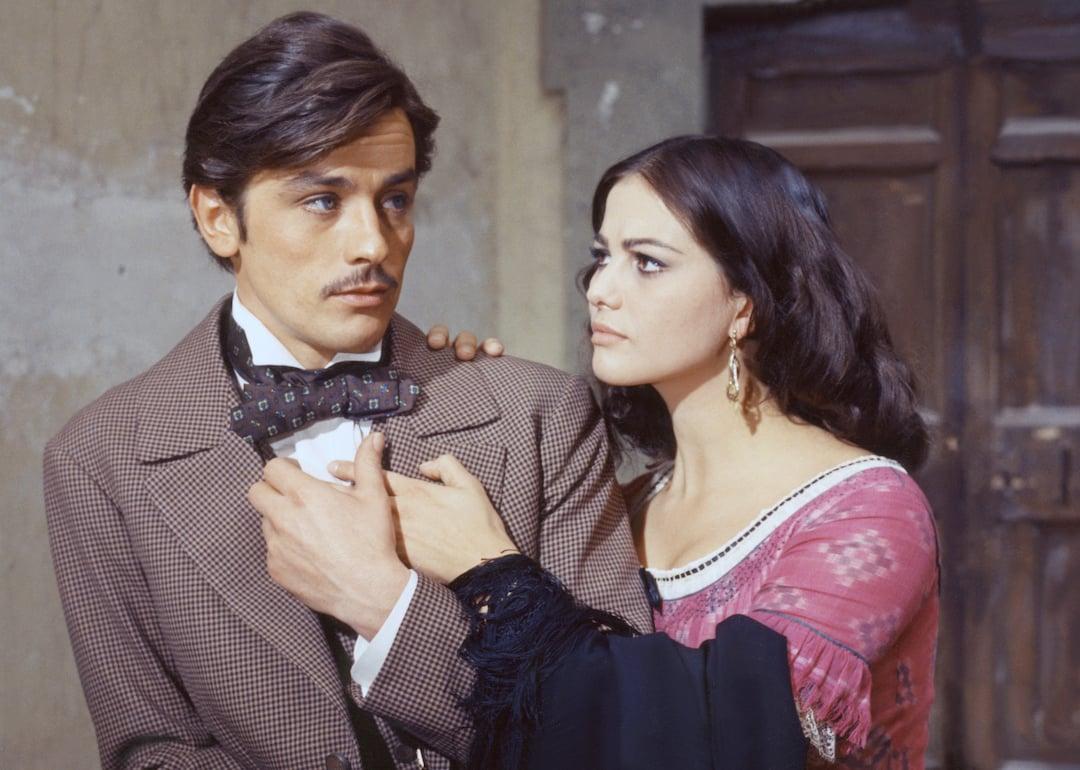
50 best international movies of all time
50 best international movies of all time
International cinema has always had a profound influence on American movies. At the same time, many great films in languages other than English retool the styles and genres of popular American movies. Have you ever forgotten you were reading subtitles as you were swept up in the action on screen? Westerns, film noirs, and even romances tap into universal visual languages of movement, action, and emotion that draw in worldwide audiences.
Some of the best reviewed films of 2025 come from other countries, including the Chinese film "Caught by the Tides," which hit American theaters on May 9, 2025; the absurdist Canadian comedy "Universal Language," a February release in the U.S. that features characters speaking French and Farsi; and "On Becoming a Guinea Fowl" from Zambian-Welsh director Rungano Nyoni, which earned a perfect 100% on Rotten Tomatoes after its March 2025 debut.
To find other noteworthy international films, Stacker compiled data, as of July 2023, on all international movies to come up with a Stacker score—a weighted index split evenly between IMDb and Metacritic scores. To qualify, the film had to be primarily in a language other than English, produced primarily outside of the U.S., have a Metascore, and have at least 5,000 votes. Ties were broken by IMDb user votes, and scores from critics and audiences were combined to give you a sense of a movie's reception.
This list of the 50 best international movies includes the science fiction masterpiece of German expressionist style, "Metropolis," with its epic, futuristic city and iconic robot gone bad. You'll also find the smash hit "Parasite," a taut thriller from South Korea that captured acclaim across the globe for its suspenseful, tragicomic look at two families from different classes.
We feature work from major auteurs of European cinema like François Truffaut of the French New Wave and Vittorio De Sica of Italian neorealism. Our list also includes major Japanese masterpieces from Akira Kurosawa and Masaki Kobayashi; Hong Kong cinema's Wong Kar-wai; and Taiwanese auteur Edward Yang.
International cinema often has a political or philosophical bent—a rebel core—it frequently explores the human condition within histories of oppression. While African cinema and women directors are underrepresented on this list and across the international film festival circuit, Céline Sciamma's "Portrait of a Lady on Fire" from France masterfully reinvents ideas around gendered gaze. Get ready for films you've heard about and obscure gems that just may become your new cinematic obsession.
Read on to see what you've already watched—and what great and underappreciated must-see film to add to your list.
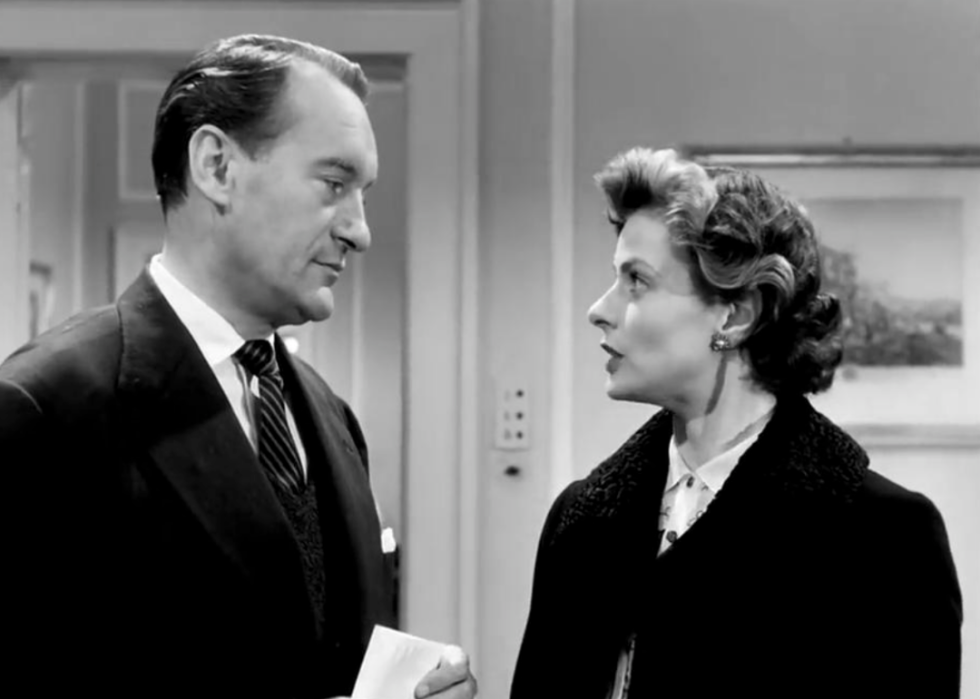
#50. Journey to Italy (1954)
- Director: Roberto Rossellini
- Stacker score: 94.02
- Metascore: 100
- IMDb user rating: 7.3
- Runtime: 97 minutes
Roberto Rossellini was a master of the Italian neorealist cinema, but in this drama, he turned to an upper-crust British couple on holiday in Naples who drift apart. Critics found it a modern transformation of the director's previous style into a work that explores the mysterious inner lives of the married couple at its center.
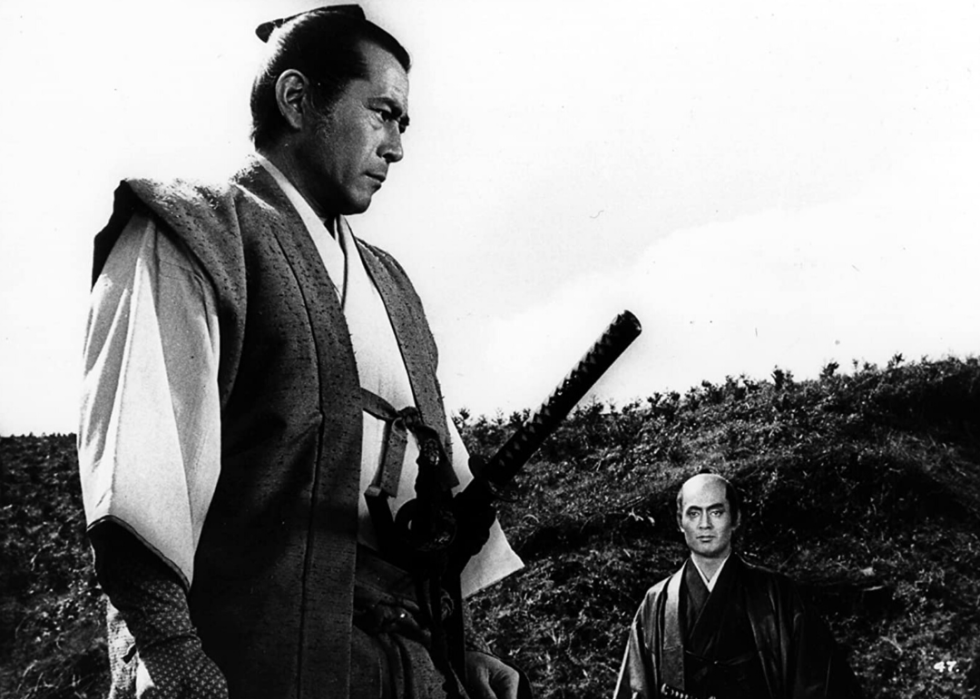
#49. Samurai Rebellion (1967)
- Director: Masaki Kobayashi
- Stacker score: 94.02
- Metascore: 90
- IMDb user rating: 8.3
- Runtime: 128 minutes
Set in feudal Japan in 1725, director Masaki Kobayashi's family drama explores the rigid injustice of social systems and the price for rebelling against them. A lord first demands that a samurai's son marry his cast-off concubine, but then demands her return after the couple has fallen in love. Stunning black-and-white cinematography conveys this world's oppressive structure, as well as the passion of those who choose to defy it.
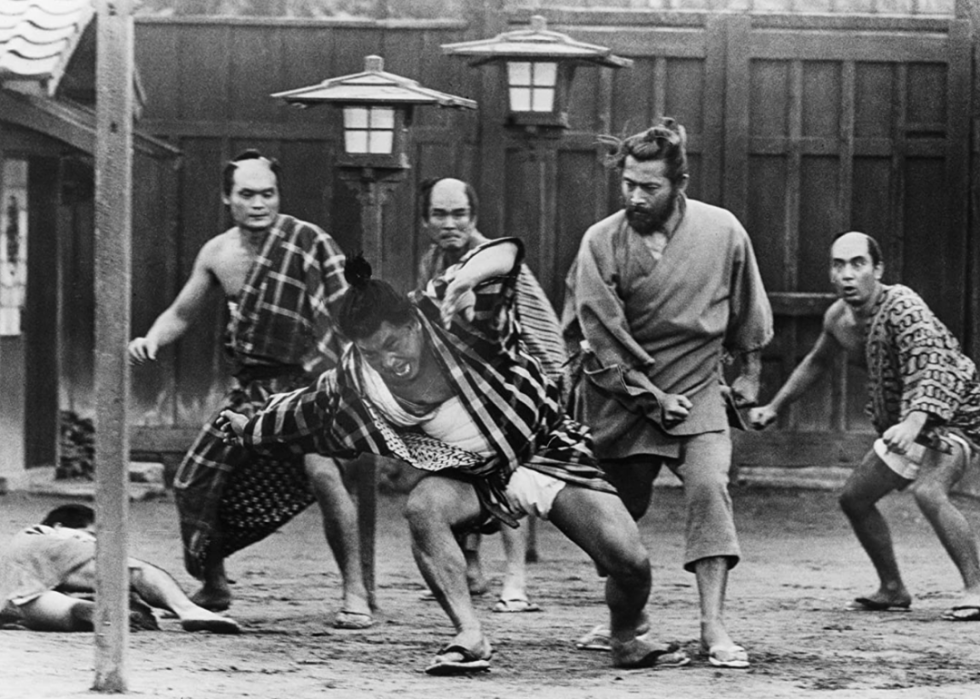
#48. Red Beard (1965)
- Director: Akira Kurosawa
- Stacker score: 94.02
- Metascore: 90
- IMDb user rating: 8.3
- Runtime: 185 minutes
An aspiring physician completes medical school and takes up a job in a small, rural clinic, working under the village doctor Red Beard. Though the young physician had wanted an easy job working for the wealthy, Red Beard proves a wise teacher and introduces the young man to the human aspect of medicine. "Red Beard" was the last collaboration between director Akira Kurosawa and actor Toshirô Mifune after making 16 films together.
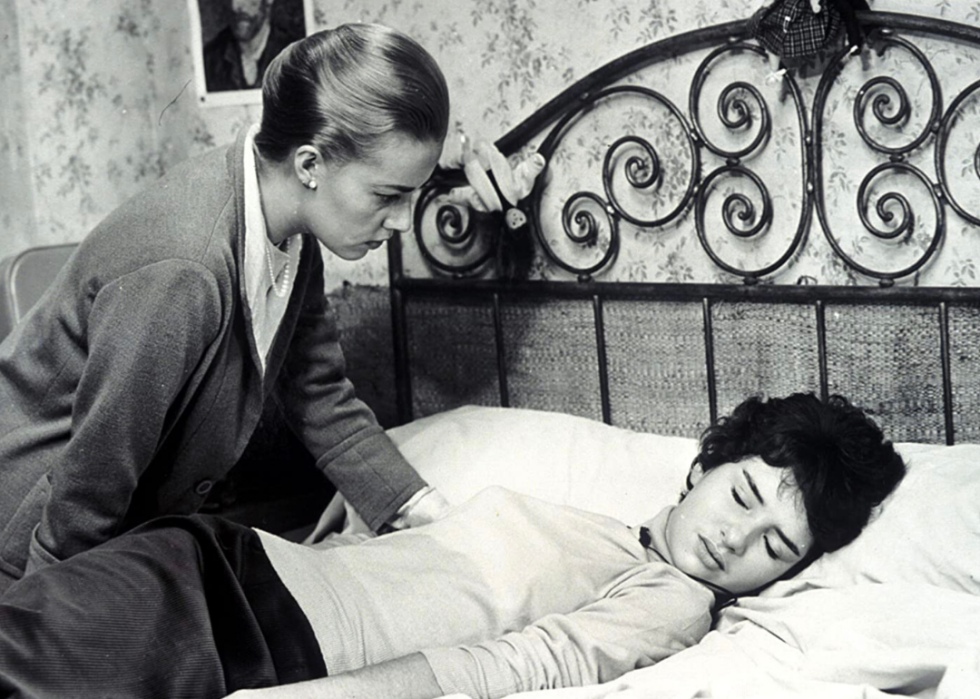
#47. Elevator to the Gallows (1958)
- Director: Louis Malle
- Stacker score: 94.02
- Metascore: 94
- IMDb user rating: 7.9
- Runtime: 91 minutes
French director Louis Malle's debut film, a crime thriller with a soundtrack Miles Davis and his crew improvised over two days, imbues film noir with a jazz edge. An adulterous couple plots a murderous scheme that leaves one of them locked in an elevator in scenes that teem with claustrophobic suspense. One thing after another goes awry as the crimes go from bad to worse on a twisting path toward doom.
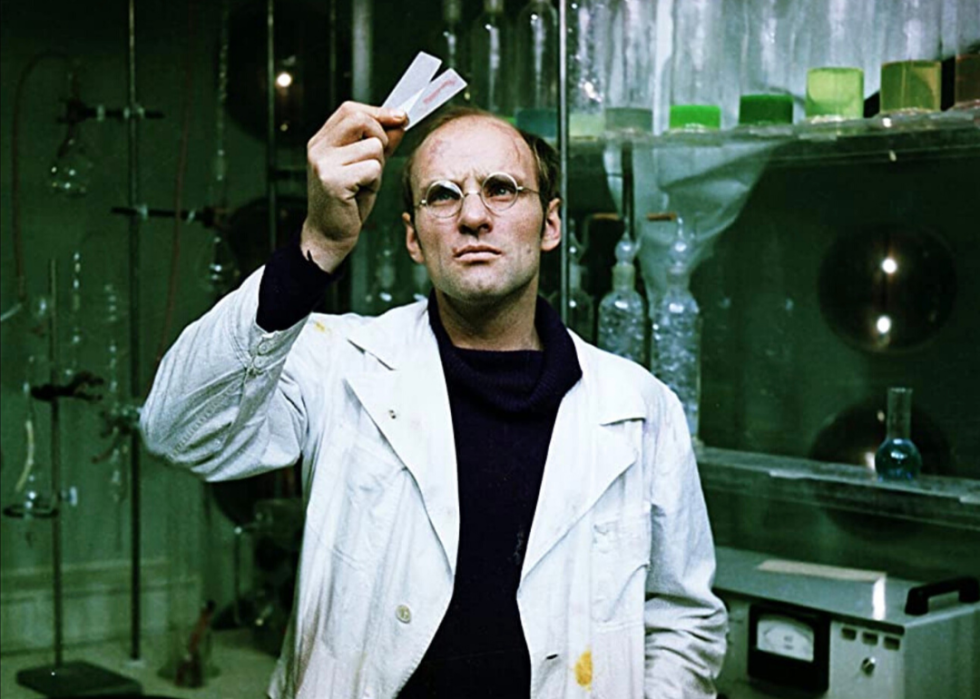
#46. Solaris (1972)
- Director: Andrei Tarkovsky
- Stacker score: 94.02
- Metascore: 93
- IMDb user rating: 8.0
- Runtime: 167 minutes
Andrei Tarkovsky's science fiction art film set on a space station is considered a masterpiece of Russian cinema. A psychologist travels to a space station to investigate strange occurrences and soon finds himself caught up in the weirdness. His long-dead wife shows up, along with other baffling occurrences, in this contemplative drama that uses the isolation and mysteries of space to consider human experience, the nature of reality and perception, and memory.
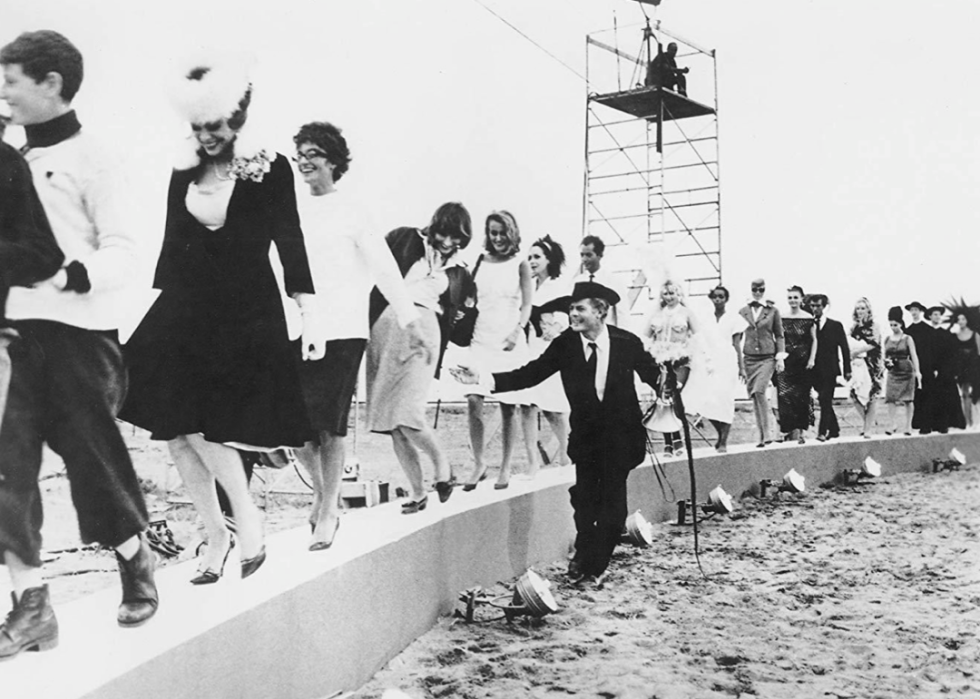
#45. 8½ (1963)
- Director: Federico Fellini
- Stacker score: 94.02
- Metascore: 93
- IMDb user rating: 8.0
- Runtime: 138 minutes
At the height of his career, an Italian filmmaker finds himself in a creative slump while trying to make a new movie, and he decides to get away at a luxurious resort. There, he seeks refuge in his fantastical thoughts of past loves and childhood but finds that the troubles of his reality are not far behind him. A co-production between Italy and France, the avant-garde comedy-drama was nominated for five Academy Awards in 1964, taking home Best Foreign Language Film and Best Costume Design, Black-and-White.
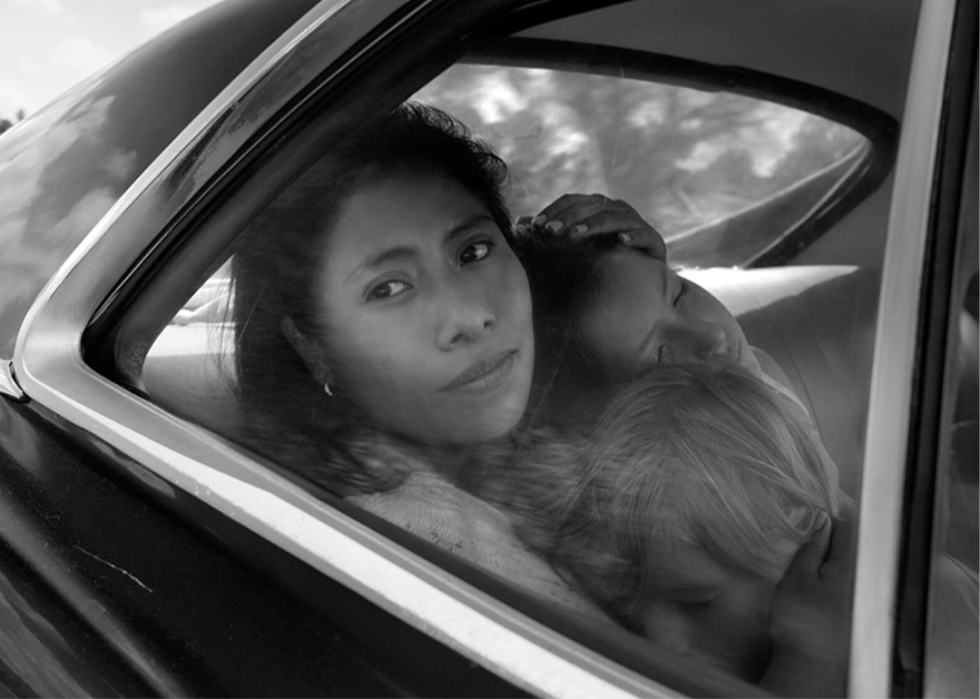
#44. Roma (2018)
- Director: Alfonso Cuarón
- Stacker score: 94.02
- Metascore: 96
- IMDb user rating: 7.7
- Runtime: 135 minutes
Alfonso Cuarón's semi-autobiographical film is loosely based on his own childhood experience growing up during the civil unrest in 1970s Mexico City. Yalitza Aparicio was nominated for a Best Actress Oscar for her debut performance as the live-in housekeeper of an affluent household in a film that explores class.
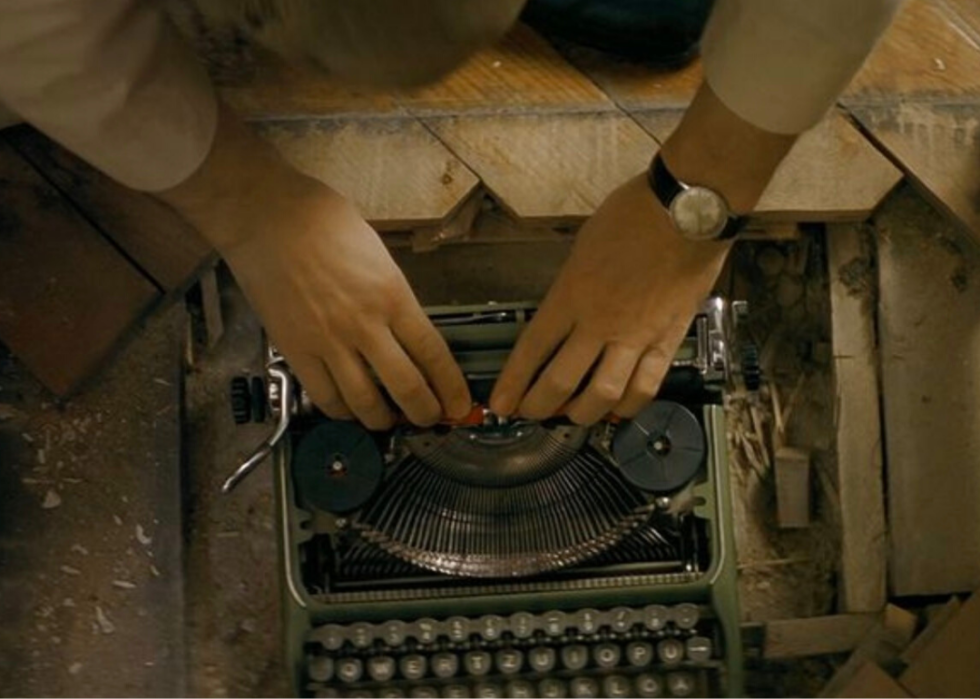
#43. The Lives of Others (2006)
- Director: Florian Henckel von Donnersmarck
- Stacker score: 94.02
- Metascore: 89
- IMDb user rating: 8.4
- Runtime: 137 minutes
German writer-director Florian Henckel von Donnersmarck's film debut concerns the Stasi East German police, who spied on those deemed a threat to the state, especially artists. Set in 1980s East Berlin, this dramatic thriller creates a pervasive tension as it exposes the secrets of spies and those they surveil.
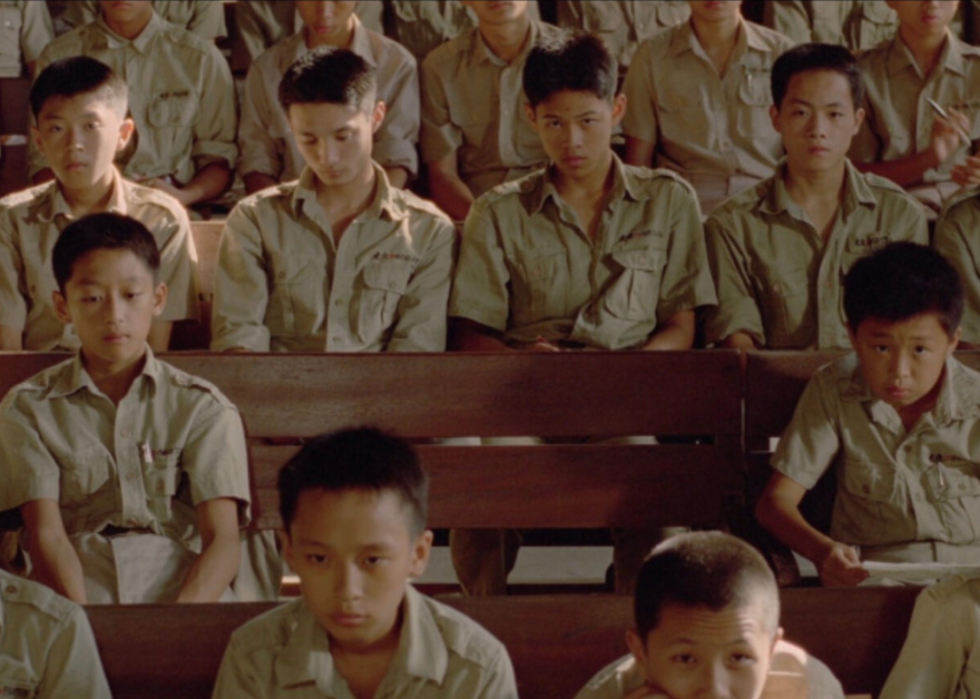
#42. A Brighter Summer Day (1991)
- Director: Edward Yang
- Stacker score: 94.57
- Metascore: 91
- IMDb user rating: 8.3
- Runtime: 237 minutes
Edward Yang is a quintessential director of the Taiwanese New Wave cinema movement known for its stylistic innovations and political content specific to Tawainese identity and history. "A Brighter Summer Day," set in 1960s Taiwan and based on a true event, follows a teenage boy caught up in gang life who murders his girlfriend. Yang's captivating realist style uses long takes to create a mesmerizing and affective tragedy.
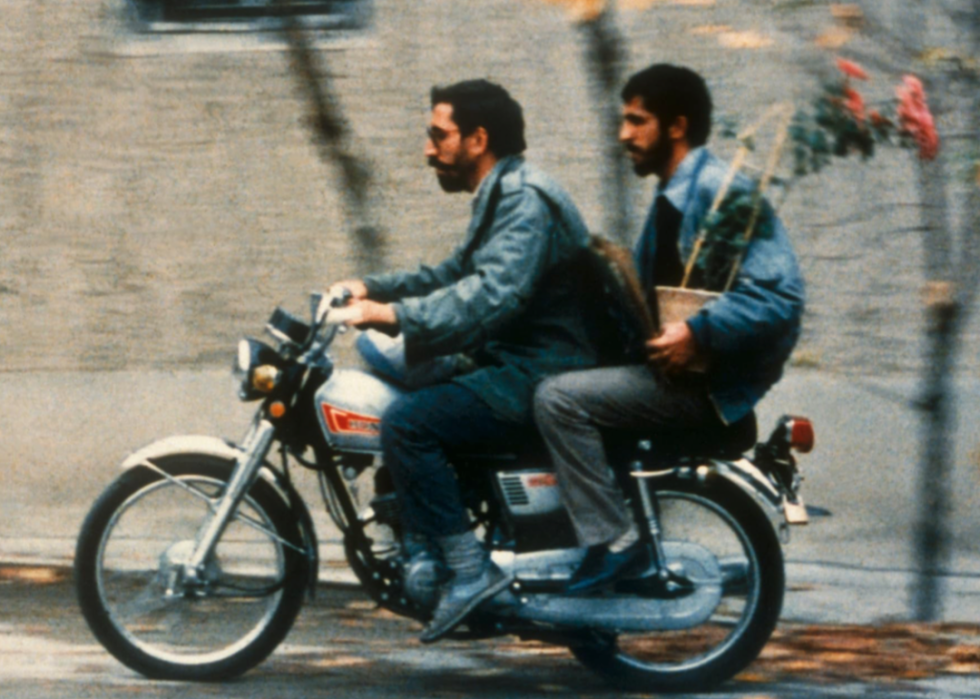
#41. Close-Up (1990)
- Director: Abbas Kiarostami
- Stacker score: 94.57
- Metascore: 92
- IMDb user rating: 8.2
- Runtime: 98 minutes
Combining fiction with documentary, this film from Iranian director Abbas Kiarostami plays out a real incident of identity theft with the real people who were a part of it. Hossain pretends to be filmmaker Mohsen Makhmalbaf, who is supposedly looking to film the wealthy Ahankhahs—until Hossain's scheme is uncovered and he's arrested for charges of fraud. The film is considered a masterwork and made #17 on the Sight & Sound's Greatest Films of All Time poll.
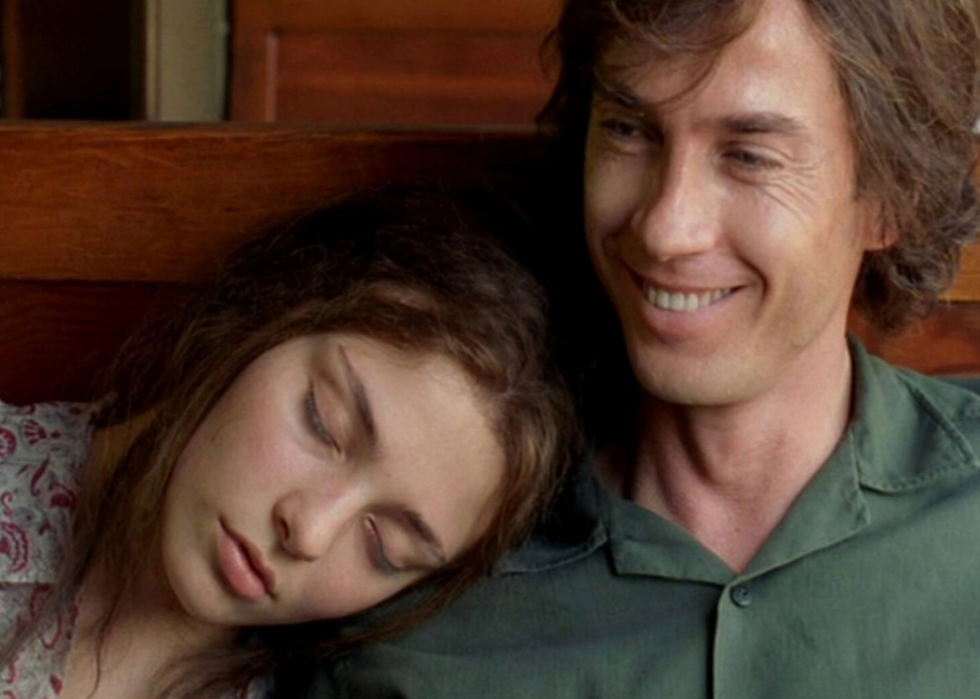
#40. The Best of Youth (2003)
- Director: Marco Tullio Giordana
- Stacker score: 94.57
- Metascore: 89
- IMDb user rating: 8.5
- Runtime: 366 minutes
Originally intended as a miniseries for Italian television, "The Best of Youth" clocks in at six hours long. However, critics found it to be an enthralling drama that earns its length as it follows two brothers across four decades. The two men clash in ideals and careers in a surprisingly engrossing melodrama that explores the divisions and connections in families.
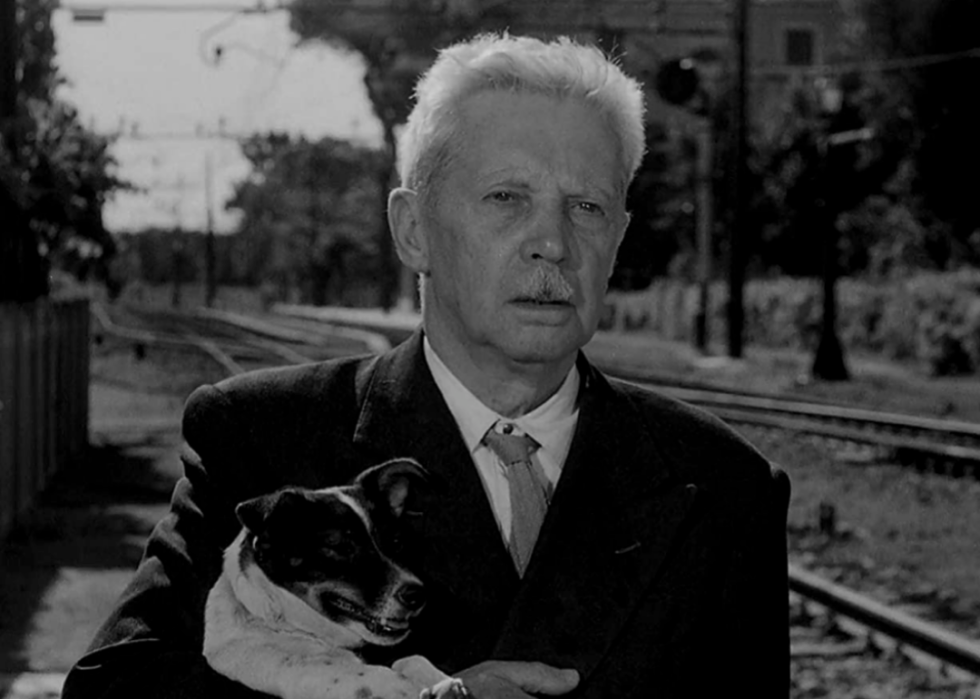
#39. Umberto D. (1952)
- Director: Vittorio De Sica
- Stacker score: 94.57
- Metascore: 92
- IMDb user rating: 8.2
- Runtime: 89 minutes
Vittorio De Sica's masterpiece of the Italian neorealist cinema examines the plight of an elderly man, Umberto, and his dog adrift in a social system with no means to support them. The film features long takes of the details of everyday existence as Umberto gets evicted from the room he rents, then is discharged from a hospital, finding himself without options to survive.
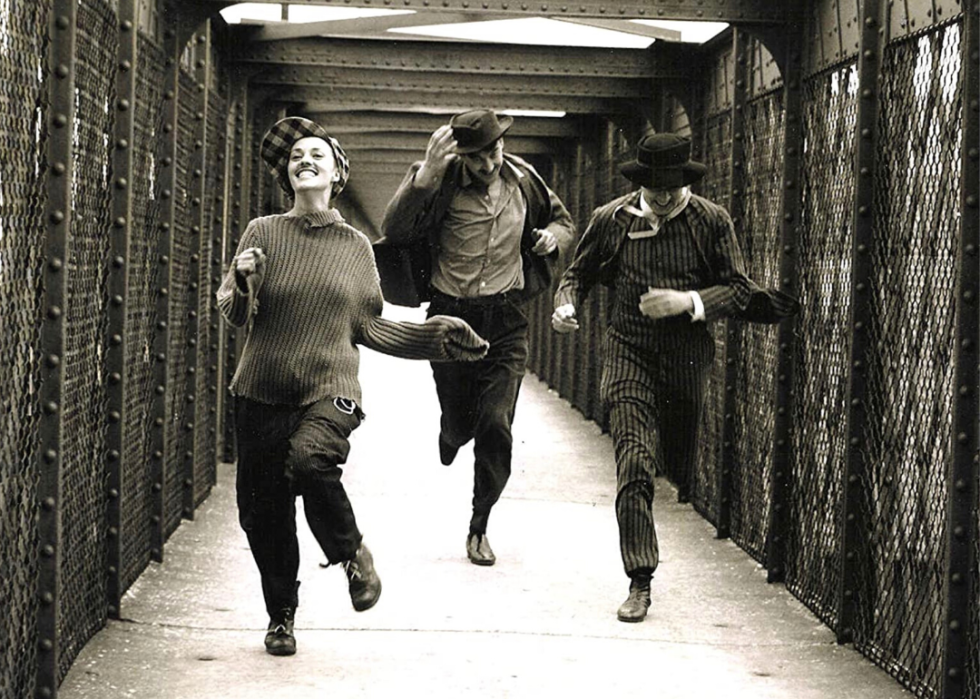
#38. Jules and Jim (1962)
- Director: François Truffaut
- Stacker score: 94.57
- Metascore: 97
- IMDb user rating: 7.7
- Runtime: 105 minutes
The film follows two friends, Jules and Jim, who fight for opposite sides during World War I and fall for the same enigmatic woman, Catherine. Jeanne Moreau plays the woman at the center of one of the quintessential cinematic love triangles. François Truffaut, a major director of the French New Wave, uses elements such as handheld shots, freeze frames, roving pans, newsreel footage, and superimposition to create a sense of vivid yet ethereal realism in this film.
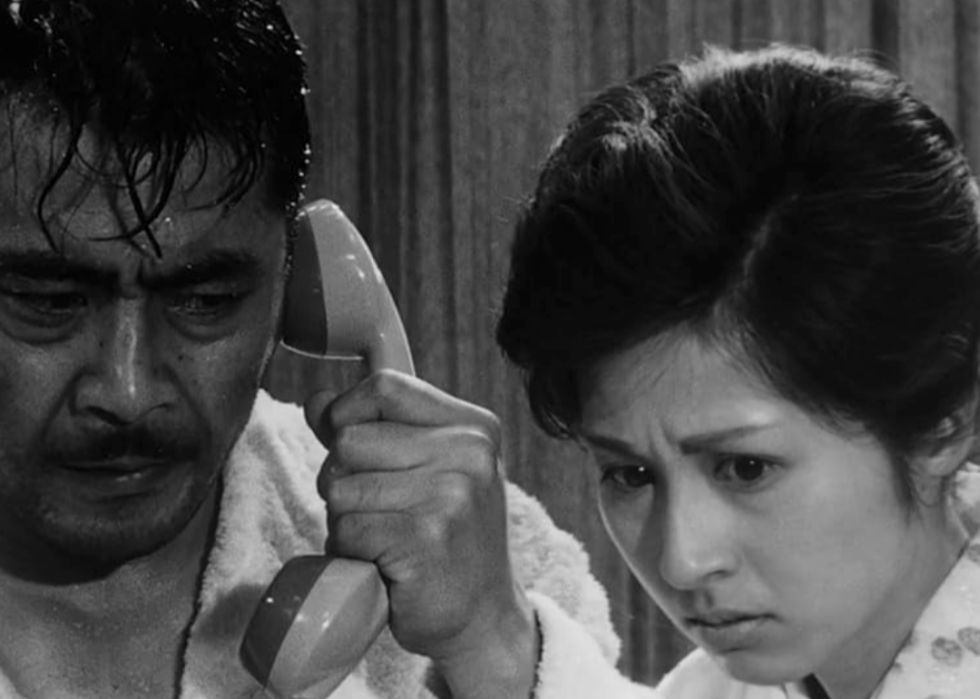
#37. High and Low (1963)
- Director: Akira Kurosawa
- Stacker score: 94.57
- Metascore: 90
- IMDb user rating: 8.4
- Runtime: 143 minutes
In this Japanese film noir, a chauffeur's son is kidnapped by mistake and held for ransom. The chauffeur's boss, a wealthy shoe company executive, is the victim of this extortion plan. Starring Akira Kurosawa's oft-collaborator Toshirô Mifune, "High and Low" was loosely based on Ed McBain's 1959 novel "King's Ransom."
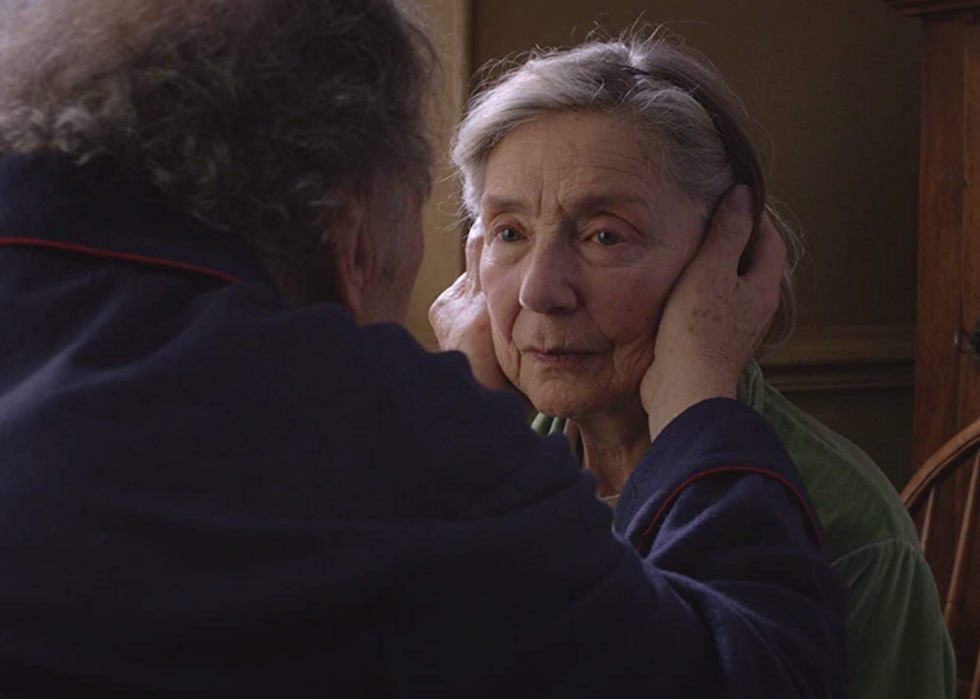
#36. Amour (2012)
- Director: Michael Haneke
- Stacker score: 94.57
- Metascore: 95
- IMDb user rating: 7.9
- Runtime: 127 minutes
Michael Haneke's "Amour" won numerous major awards, including the Palme d'Or and the Academy Award for Best Foreign Language Film. A co-production of France, Austria, and Germany, it explores the relationship between an elderly couple after one of them has a series of debilitating strokes.
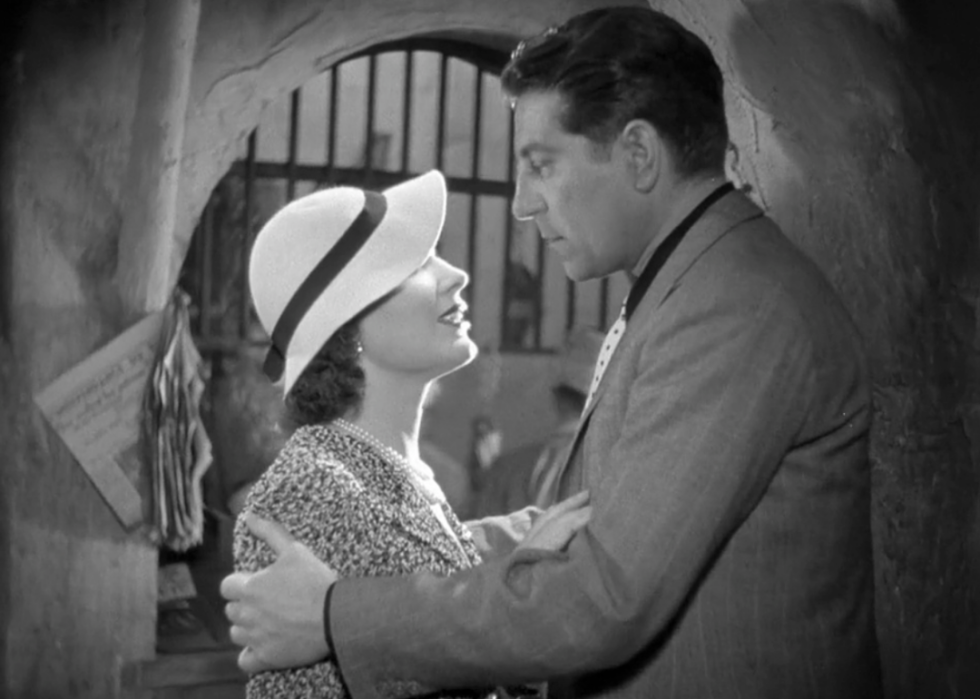
#35. Pépé le Moko (1937)
- Director: Julien Duvivier
- Stacker score: 95.11
- Metascore: 98
- IMDb user rating: 7.7
- Runtime: 94 minutes
Julien Duvivier's atmospheric romance occurs in the dark, twisting alleys and porticos of the Casbah district of Algiers, a gritty, labyrinthine world where the gangster Pépé holes up to evade police. Pépé falls for a mysterious woman, but love leads to downfall. Duvivier's style emerged as part of the Poetic Realism movement in French film that later influenced the doomed characters and bleak themes of film noir.
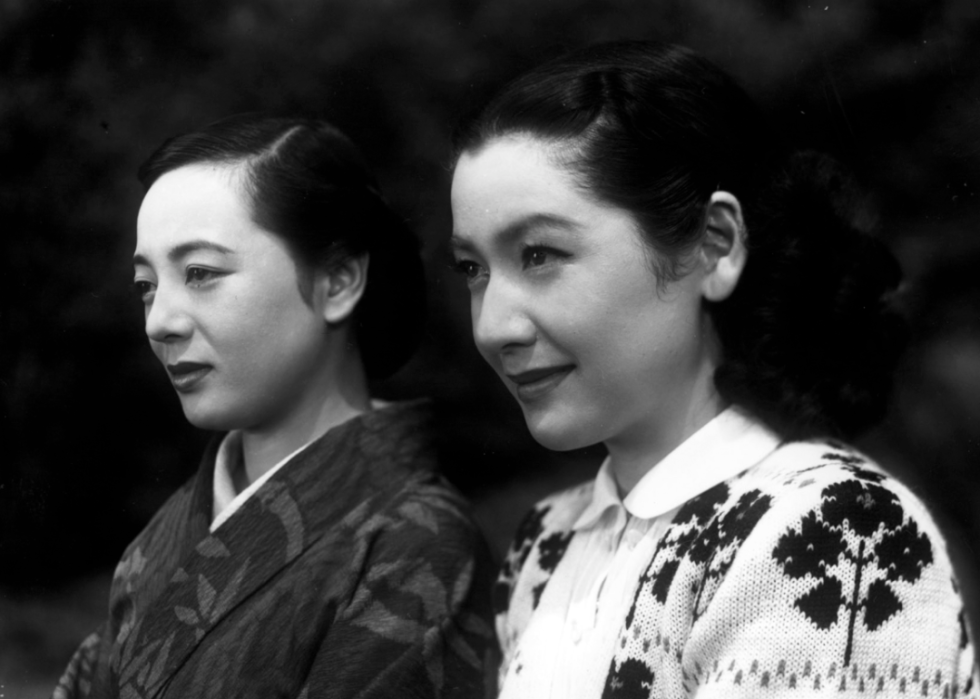
#34. Early Summer (1951)
- Director: Yasujirô Ozu
- Stacker score: 95.11
- Metascore: 94
- IMDb user rating: 8.1
- Runtime: 125 minutes
In postwar Tokyo, Noriko is 28 and still single, but she lives a happy life nonetheless with her extended family. However, that same family would prefer Noriko get married. When she's proposed to by her father's older business associate, Noriko finds her heart torn in two directions as her now-widowed childhood friend also reappears in her life. As with a number of Ozu's postwar films, "Early Summer" examines rifts between family generations and the increased independence of women.
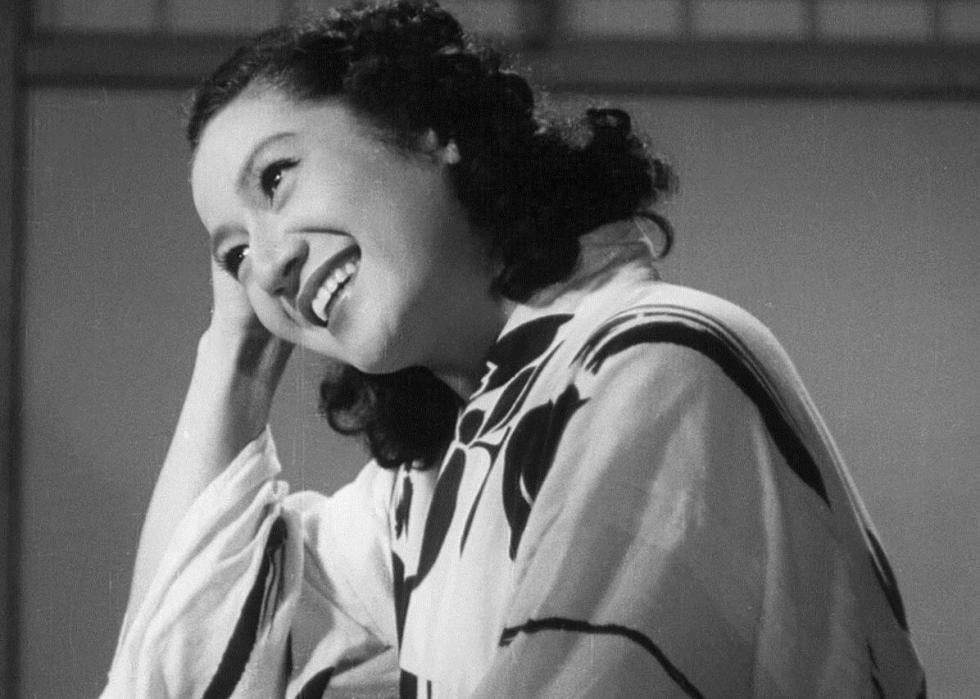
#33. Late Spring (1949)
- Director: Yasujirô Ozu
- Stacker score: 95.11
- Metascore: 93
- IMDb user rating: 8.2
- Runtime: 108 minutes
Noriko is a young, single woman living with her widowed father. She is perfectly happy with the pair's arrangement and has no plans to marry. Her father, however, begins to worry about his only child being alone for her whole life and attempts to arrange a marriage between her and a suitor. "Late Spring" is the first film in Ozu's "Noriko Trilogy," succeeded by "Early Summer" and "Tokyo Story," all of which star unique versions of the character of Noriko, played by Setsuko Hara.
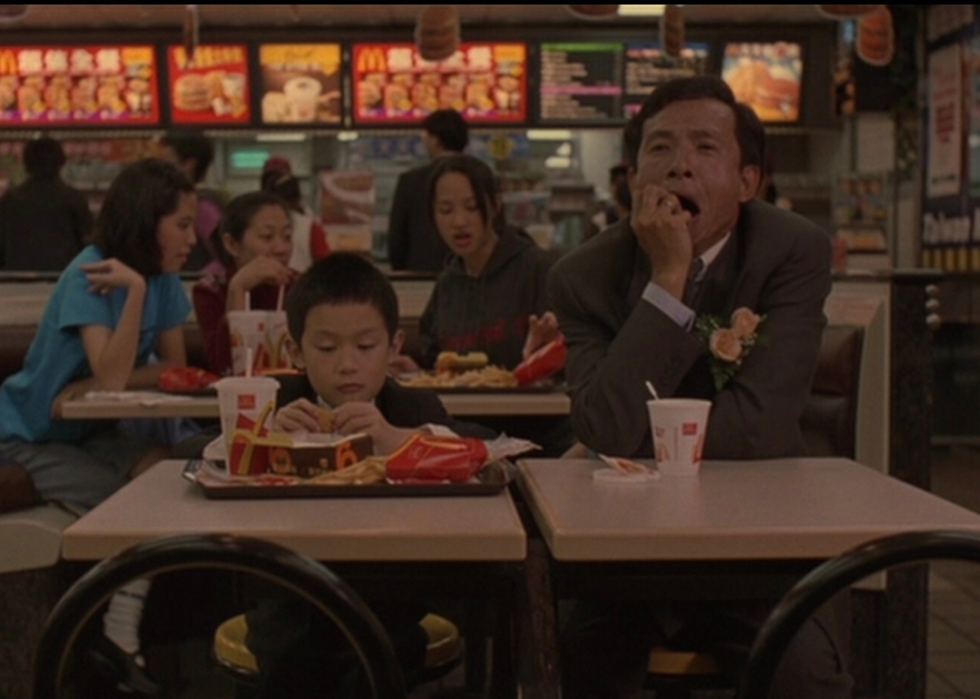
#32. Yi Yi (2000)
- Director: Edward Yang
- Stacker score: 95.11
- Metascore: 94
- IMDb user rating: 8.1
- Runtime: 173 minutes
Edward Yang, an auteur of the Taiwanese New Wave film movement, won Best Director at the Cannes Film Festival for his intimate, detailed look at the everyday lives of three generations of a family in Taipei. The drama unfolds unhurriedly as a father of two endures problems at work, a mother-in-law in a coma, and a wife in a midlife crisis—all presented in a gentle, droll, and deeply affecting style.
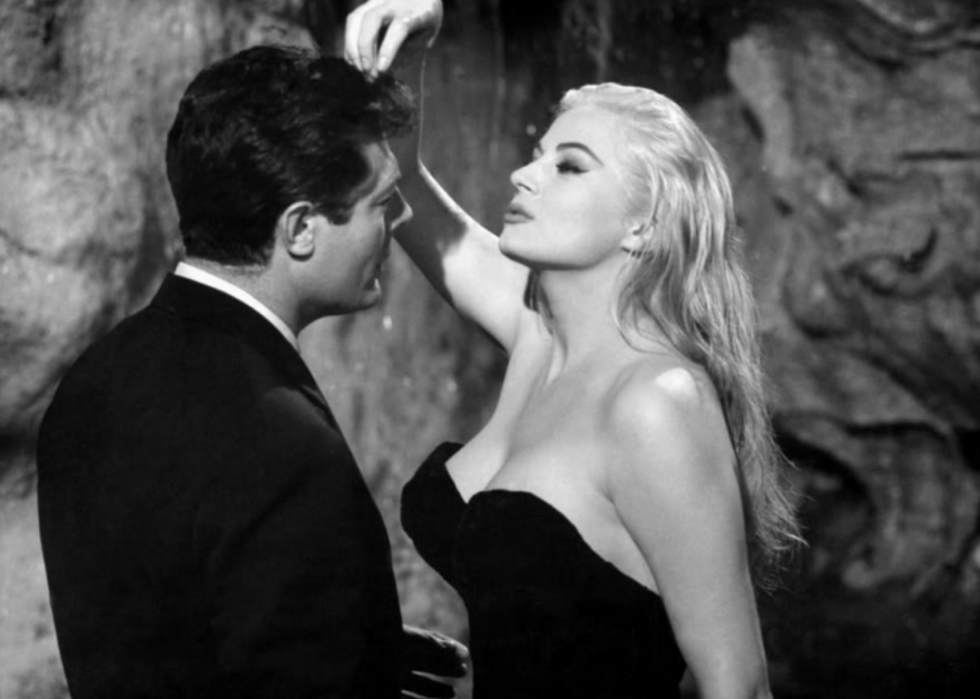
#31. La Dolce Vita (1960)
- Director: Federico Fellini
- Stacker score: 95.11
- Metascore: 95
- IMDb user rating: 8.0
- Runtime: 174 minutes
There are several iconic scenes in Federico Fellini's rhapsody on hedonism and excess, including the fountain frolic and the opening sequence where a statue of Jesus dangles from a helicopter. Marcello Mastroianni plays a tabloid columnist moving through a series of surreal vignettes across Rome in an exploration of love and celebrity that upends film conventions.
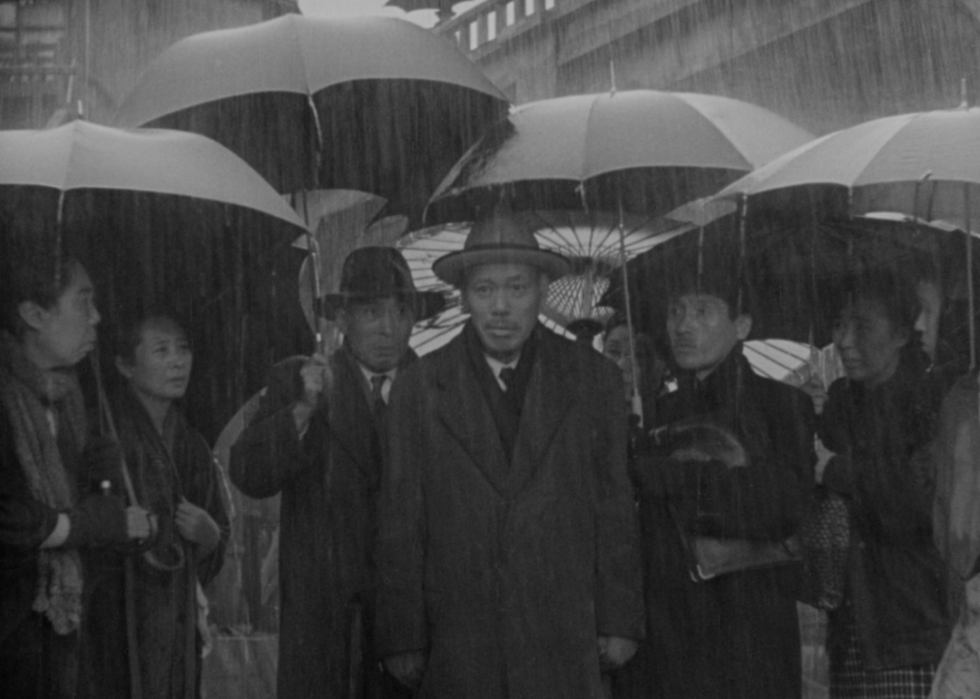
#30. Ikiru (1952)
- Director: Akira Kurosawa
- Stacker score: 95.11
- Metascore: 92
- IMDb user rating: 8.3
- Runtime: 143 minutes
Kanji Watanabe has worked in a tedious, bureaucratic position for most of his life when he suddenly receives a terminal diagnosis. With his end in sight, he attempts to live out his remaining days as meaningfully as possible and looks to build a new playground in an impoverished neighborhood. The screenplay, co-penned by director Kurosawa alongside Shinobu Hashimoto and Hideo Oguni, was partly based on Leo Tolstoy's 1886 novella "The Death of Ivan Ilyich."
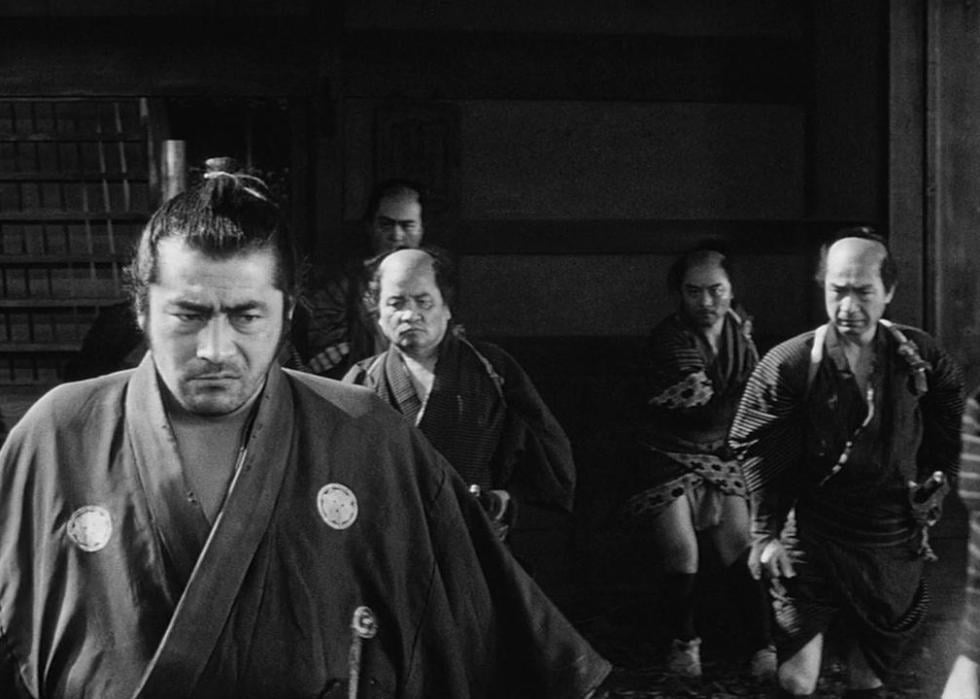
#29. Yojimbo (1961)
- Director: Akira Kurosawa
- Stacker score: 95.11
- Metascore: 93
- IMDb user rating: 8.2
- Runtime: 110 minutes
In feudal Japan, an anonymous ronin wanders into a small village, where he takes it upon himself to insert himself into a squabble between two local businessmen. Going by the name Sanjuro Kuwabatake, the ronin plays both sides, convincing both men to hire him as a bodyguard. His intervention sets in motion an eventual gang war. Italian director Sergio Leone remade "Yojimbo" as "A Fistful of Dollars," starring Clint Eastwood, in 1964, leaving out Akira Kurosawa in the credits, which led to a lawsuit that was reportedly settled out of court.
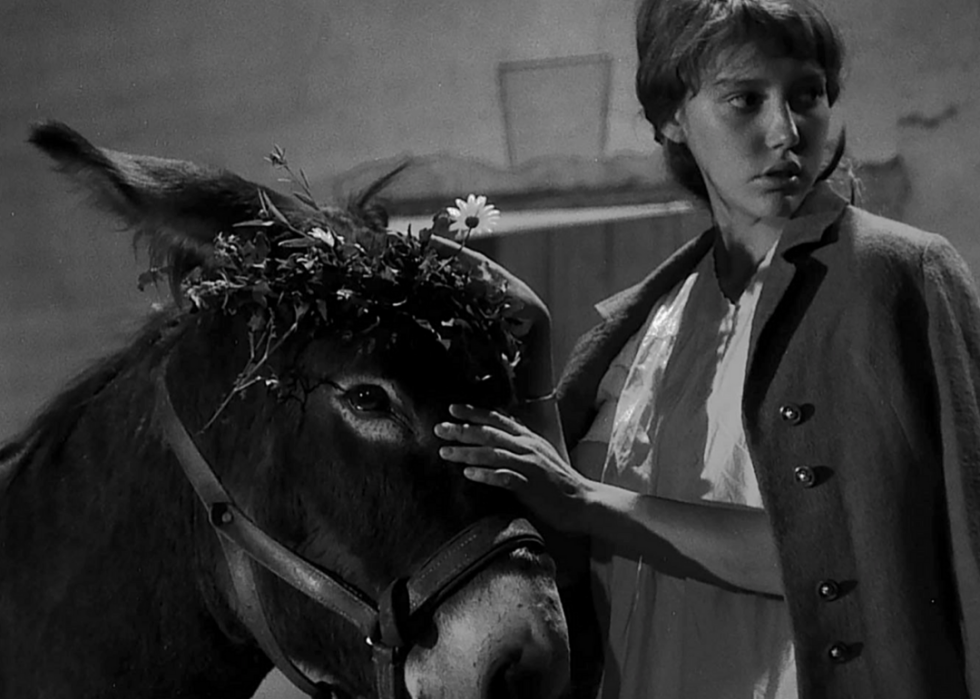
#28. Au hasard Balthazar (1966)
- Director: Robert Bresson
- Stacker score: 95.65
- Metascore: 98
- IMDb user rating: 7.8
- Runtime: 95 minutes
French director Robert Bresson's cinematic ode to the life of a donkey, Balthazar, seems an unlikely subject for critical acclaim. Bresson uses a stark and direct style where "au hasard" or "at random" encounters are both brutal and compassionate. The film achieves a poetic presentation of the human condition that evades the sentimental, despite exploring these themes through an animal's perspective.
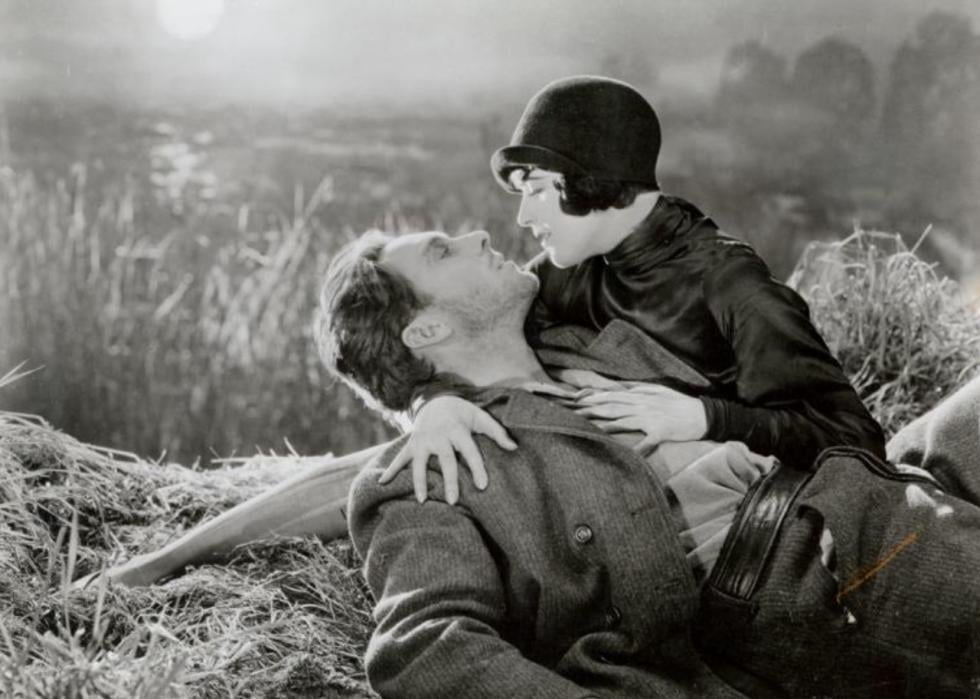
#27. Sunrise (1927)
- Director: F.W. Murnau
- Stacker score: 95.65
- Metascore: 95
- IMDb user rating: 8.1
- Runtime: 94 minutes
A farmer, bored with his domestic life, falls for a flirtatious young woman, and together they plot to murder his wife. When his wife discovers the nefarious plan, she runs away—but she's pursued by her husband, and the two of them slowly rediscover their affection for one another. The first American production from German director F.W. Murnau, "Sunrise" took home the Oscar for Unique and Artistic Picture (a category which no longer exists) at the first-ever Academy Awards ceremony in 1929.
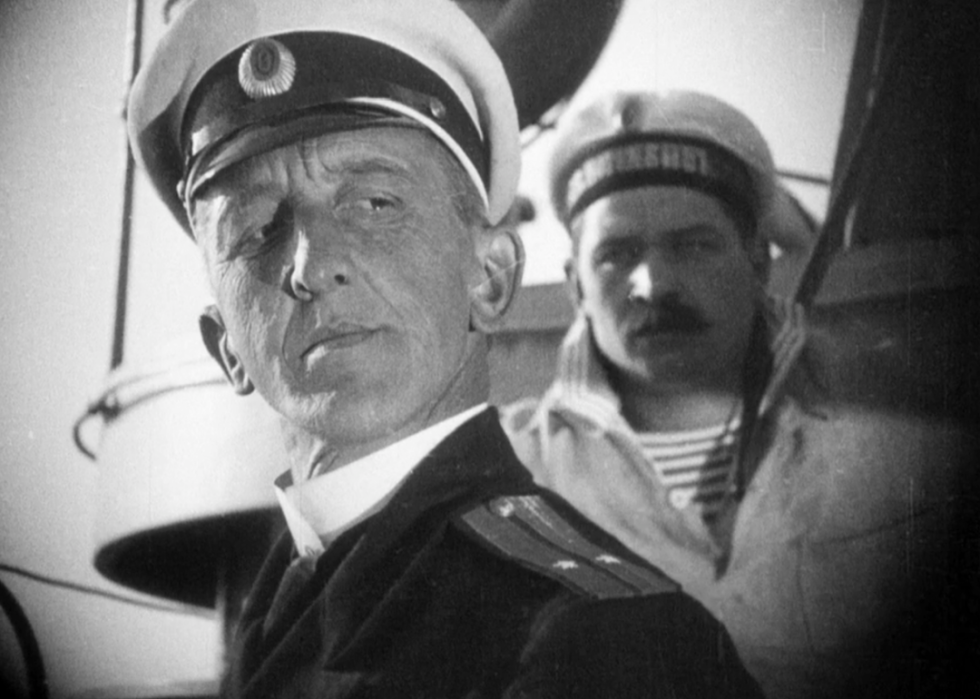
#26. Battleship Potemkin (1925)
- Director: Sergei Eisenstein
- Stacker score: 95.65
- Metascore: 97
- IMDb user rating: 7.9
- Runtime: 66 minutes
A dramatization of a real-life mutiny that occurred on a Russian naval ship in 1905, the sailors of the Potemkin revolt against their inhumane conditions. The result is a wide-scale public uprising, leading to a massacre of civilians by police. A sequence in the film known as "The Odessa Steps" is regarded as one of the most influential scenes in all of film history.
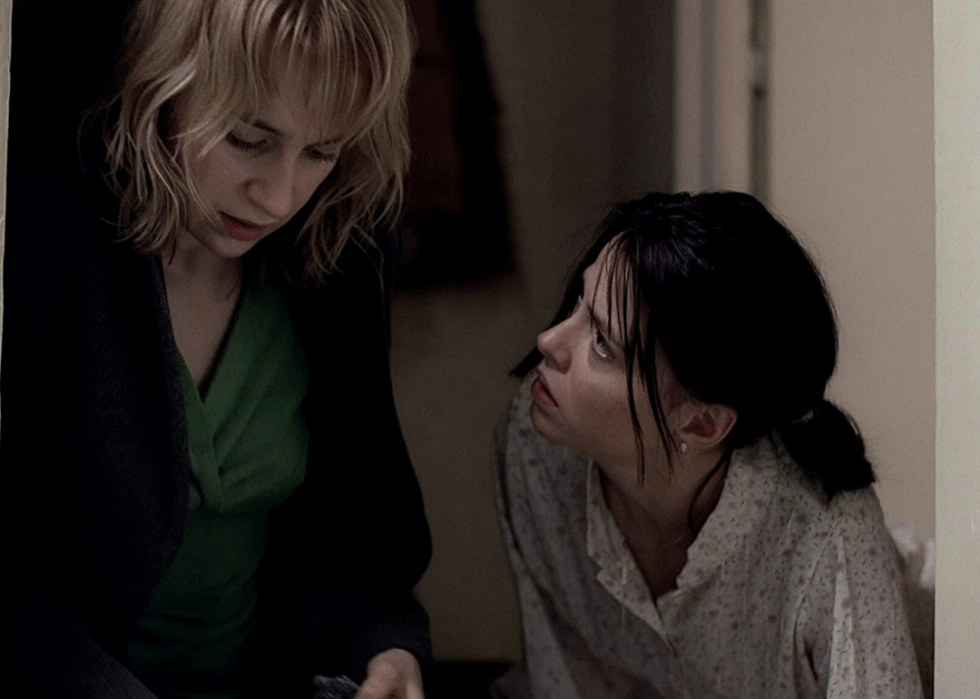
#25. 4 Months, 3 Weeks and 2 Days (2007)
- Director: Cristian Mungiu
- Stacker score: 95.65
- Metascore: 97
- IMDb user rating: 7.9
- Runtime: 113 minutes
Cristian Mungiu's searing, minimalist thriller-of-the-everyday became the first Romanian film to win the Palme d'Or at the Cannes Film Festival. Set in 1987 in communist Romania, the story follows what two college-age women go through when one of them seeks an abortion in a country where it's illegal. Cinematography focuses on the stark details of an oppressive world seen through intimate long takes.
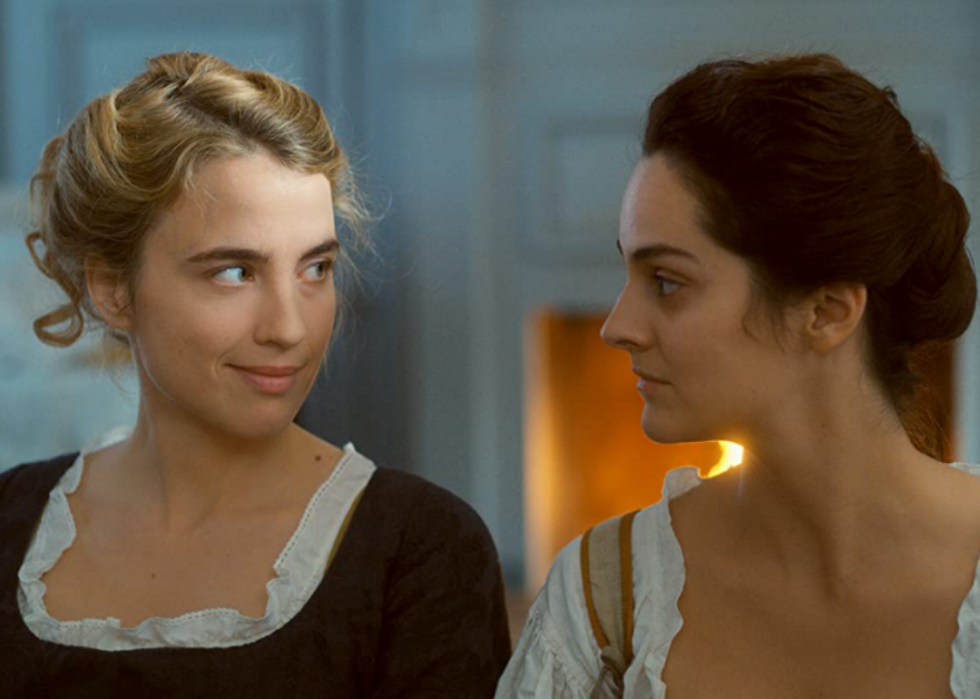
#24. Portrait of a Lady on Fire (2019)
- Director: Céline Sciamma
- Stacker score: 95.65
- Metascore: 95
- IMDb user rating: 8.1
- Runtime: 122 minutes
Céline Sciamma's mesmerizing love story creates a new cinematic language, one that explores a female gaze that reinvents what it means for women both to look and be looked at beyond the conventions of male objectification. Set in late 18th-century France, an artist, Marianne (Noémie Merlant), is commissioned to paint the portrait of Héloïse (Adèle Haenel). The painting, meant for a groom whom Héloïse has never met, becomes a subversive and romantic project for the two.
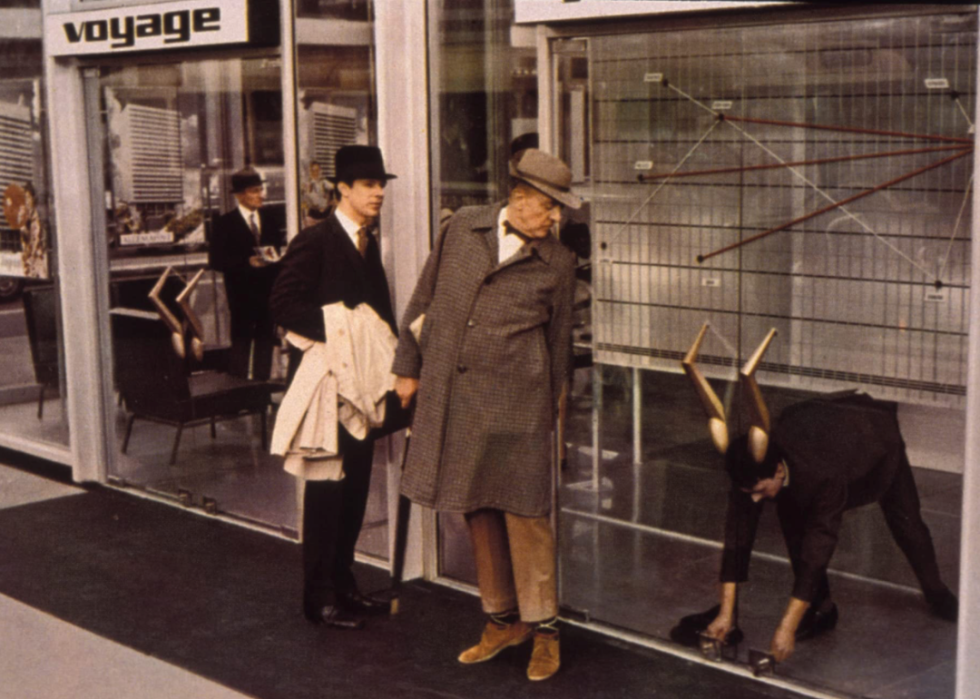
#23. Playtime (1967)
- Director: Jacques Tati
- Stacker score: 96.20
- Metascore: 99
- IMDb user rating: 7.8
- Runtime: 155 minutes
This film features director Jacques Tati's popular character Monsieur Hulot, whom Tati also portrays. In this picture—the most expensive French movie made at the time—Hulot finds himself bewildered by an increasingly technologized Paris as he stumbles through a world that seems alien to him. His journey mirrors that of an American tourist, whom he grows fond of as they sporadically meet.
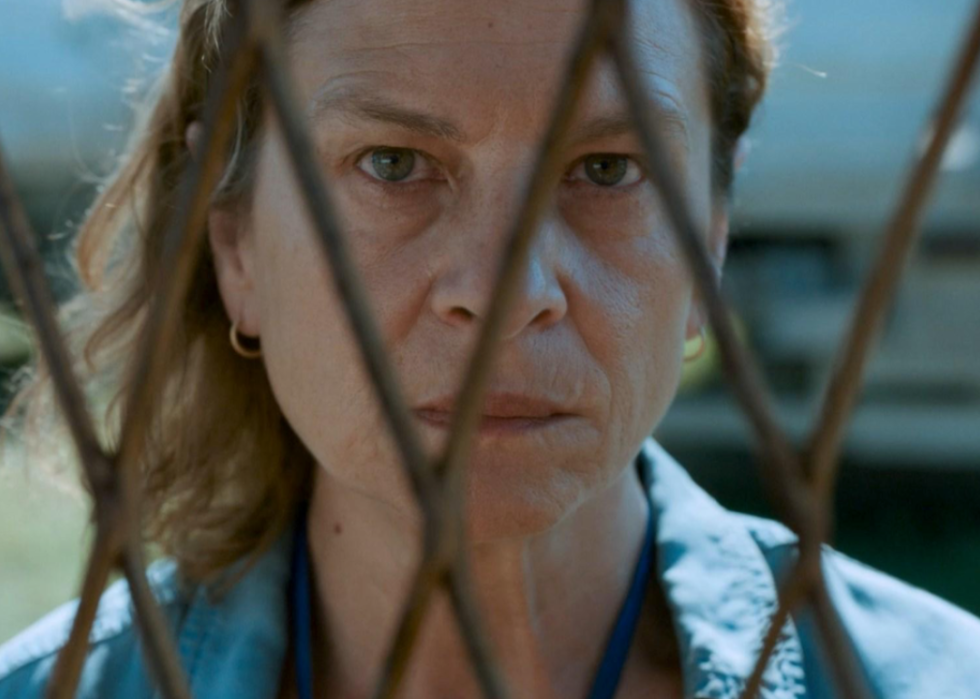
#22. Quo Vadis, Aida? (2020)
- Director: Jasmila Zbanic
- Stacker score: 96.20
- Metascore: 97
- IMDb user rating: 8.0
- Runtime: 101 minutes
In Bosnia in 1995, a schoolteacher and her family are displaced when the Serbian army takes over their town. Seeking shelter with many others at a U.N. camp, Aida proves a crucial component in untangling what future lies in store for her family and her people. "Quo Vadis, Aida?" dramatizes the events that took place during the Srebrenica massacre, led by a convicted Bosnian Serbian war criminal.
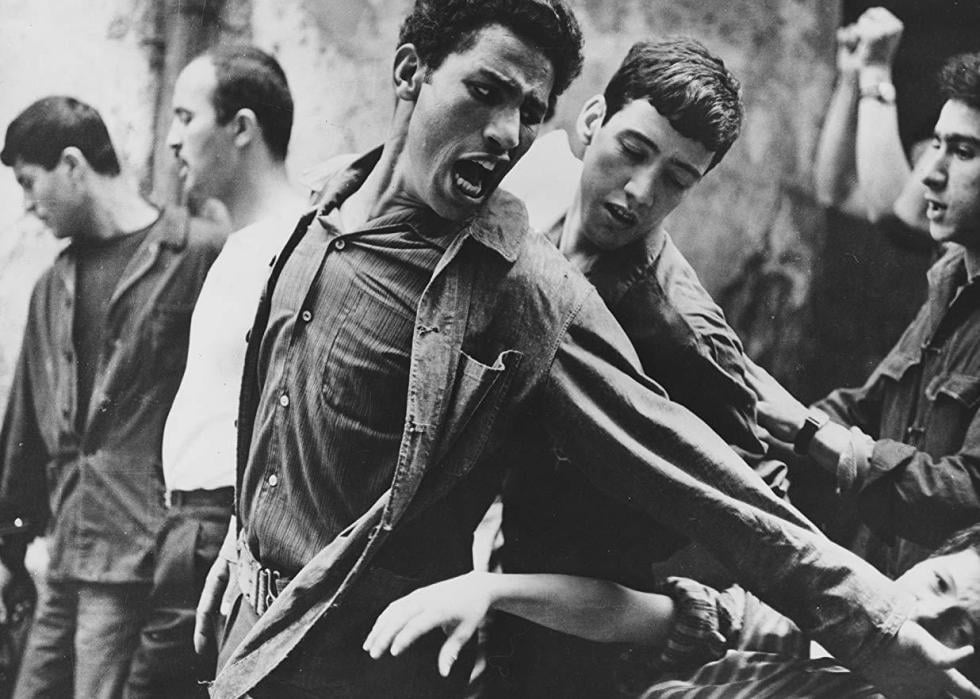
#21. The Battle of Algiers (1966)
- Director: Gillo Pontecorvo
- Stacker score: 96.20
- Metascore: 96
- IMDb user rating: 8.1
- Runtime: 121 minutes
Using the stylistic tenets of the Italian neorealist film movement, "The Battle of Algiers" is shot in black-and-white with nonprofessional actors to achieve a sense of documentary reality in depicting the history of the Algerian War of Independence from the French government. It was a joint production between Italy and Algeria and was initially banned in France.
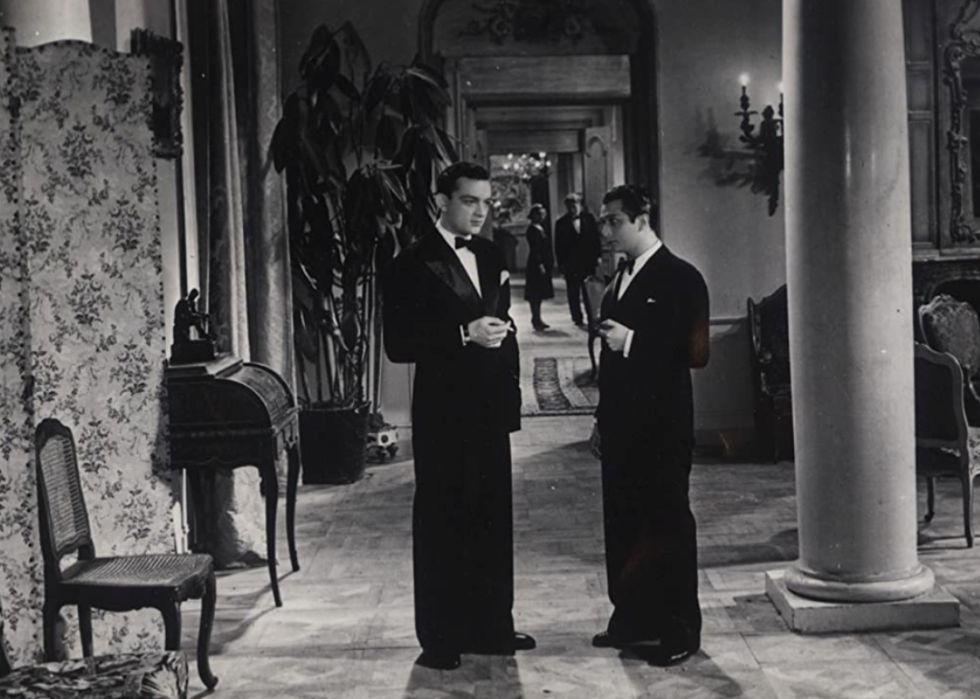
#20. The Rules of the Game (1939)
- Director: Jean Renoir
- Stacker score: 96.74
- Metascore: 99
- IMDb user rating: 7.9
- Runtime: 110 minutes
French director Jean Renoir's critique of French society follows multiple couples and the affairs that they're having, some aristocratic and some very much not. During a weekend getaway at a marquis' country chateau, these secret passions collide and are disquietingly laid bare.
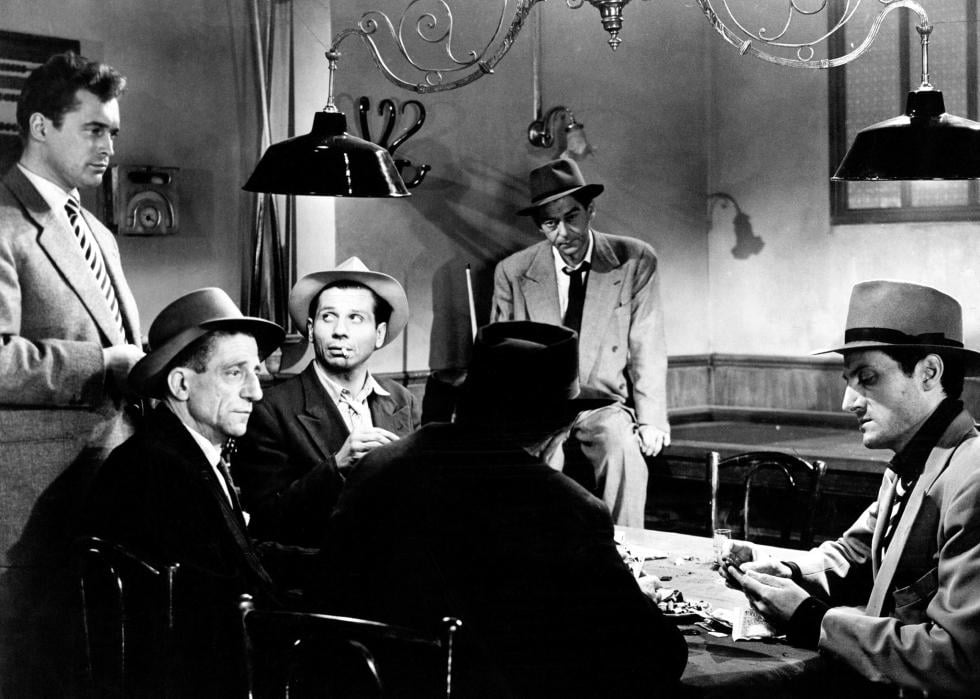
#19. Rififi (1955)
- Director: Jules Dassin
- Stacker score: 96.74
- Metascore: 97
- IMDb user rating: 8.1
- Runtime: 118 minutes
Jules Dassin, an American blacklisted during the McCarthy era, directed the influential heist film "Rififi" in France. This bleak, dread-soaked caper includes a suspenseful play-by-play break-in that requires meticulous safecracking. The criminal gang, each member with their own expertise, looks to pull off that one final job, but nothing goes as planned.
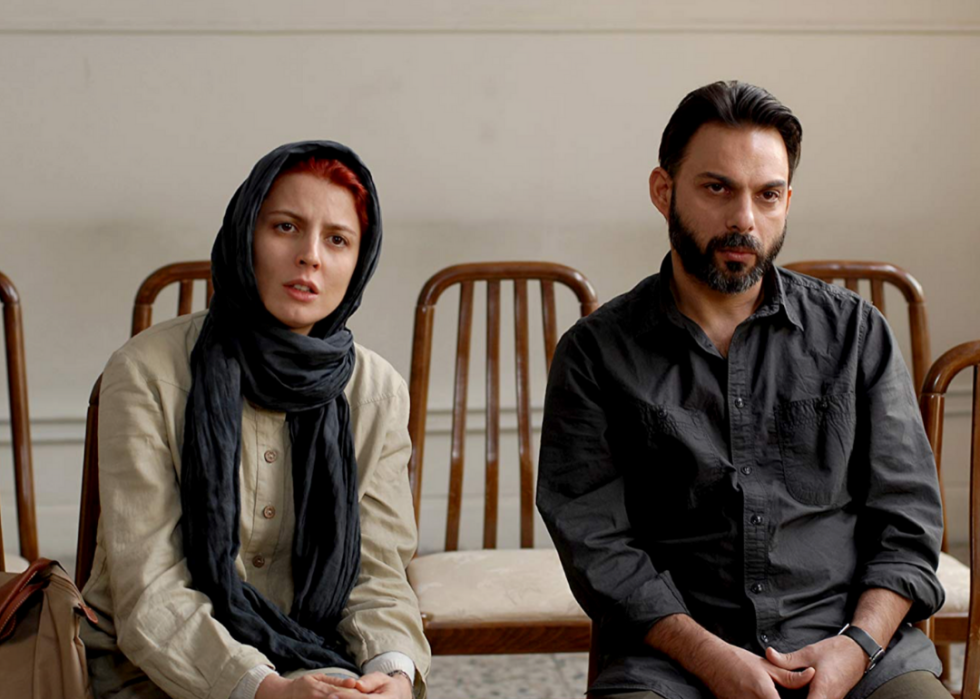
#18. A Separation (2011)
- Director: Asghar Farhadi
- Stacker score: 96.74
- Metascore: 95
- IMDb user rating: 8.3
- Runtime: 123 minutes
The first Iranian film to win the Best Foreign Language Film Oscar is also one of the great films about divorce. Asghar Farhadi's drama opens with the broken couple (Leila Hatami and Payman Maadi) directly addressing both the camera and a family court judge. The audience is pulled into a tense and intimate world where it's impossible to choose sides in the complicated dispute that unfolds with the couple's young daughter, who is caught in the middle.
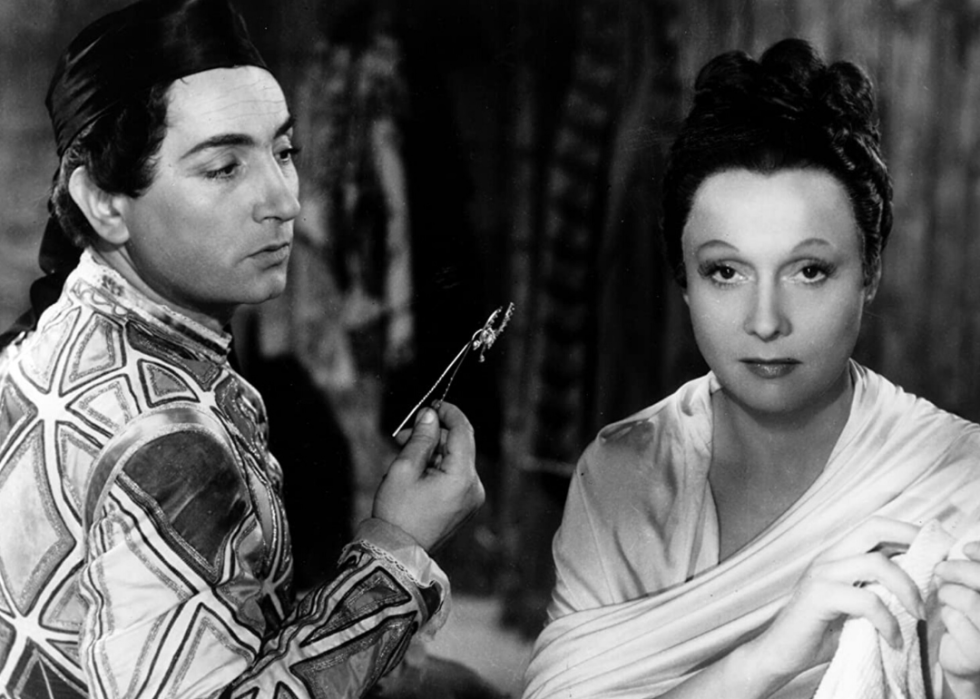
#17. Children of Paradise (1945)
- Director: Marcel Carné
- Stacker score: 97.28
- Metascore: 96
- IMDb user rating: 8.3
- Runtime: 189 minutes
"Children of Paradise" was shot on soundstages during the restrictive Vichy regime during World War II and is considered an achievement in French studio filmmaking. The film is a long, epic costume drama set in the 1830s with a style that is traditional and straightforward with stagy, affected performances. It's filled with subversive subtext as it follows a beguiling woman with four suitors, each with their own agenda.
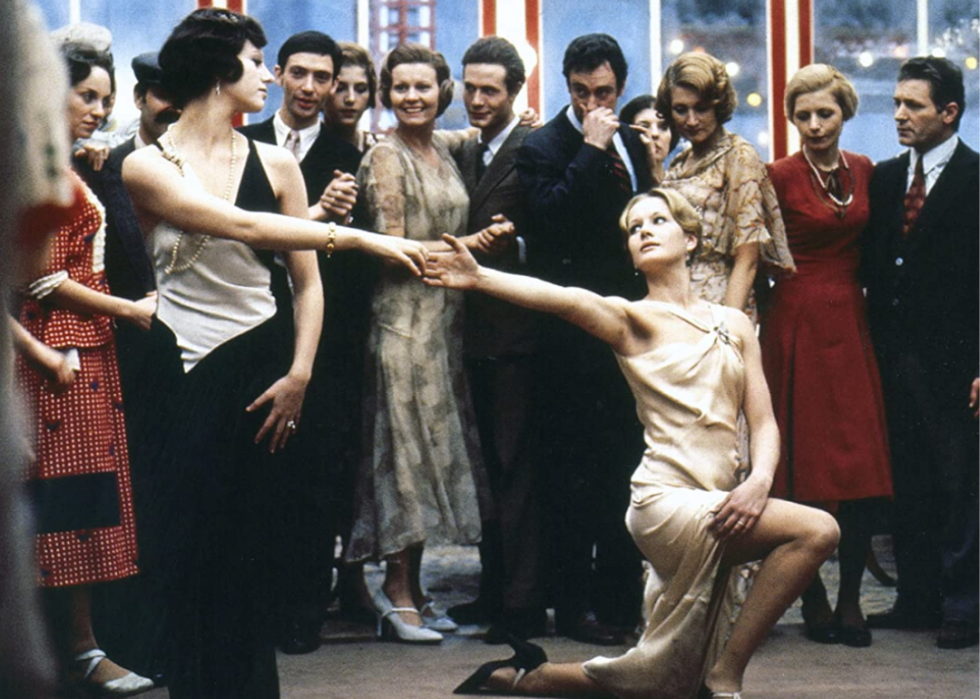
#16. The Conformist (1970)
- Director: Bernardo Bertolucci
- Stacker score: 97.28
- Metascore: 100
- IMDb user rating: 7.9
- Runtime: 113 minutes
Italian auteur Bernardo Bertolucci infuses his drama about conformity with stylish, color-rich cinematography that captures 1930s Italy, where an assassin, Marcello, is sent to kill his outspoken, antifascist former professor. Bertolucci's nonlinear narrative moves across Marcello's life to explore how his obsession with acceptance contributes to his fascist sympathies and easy betrayals.
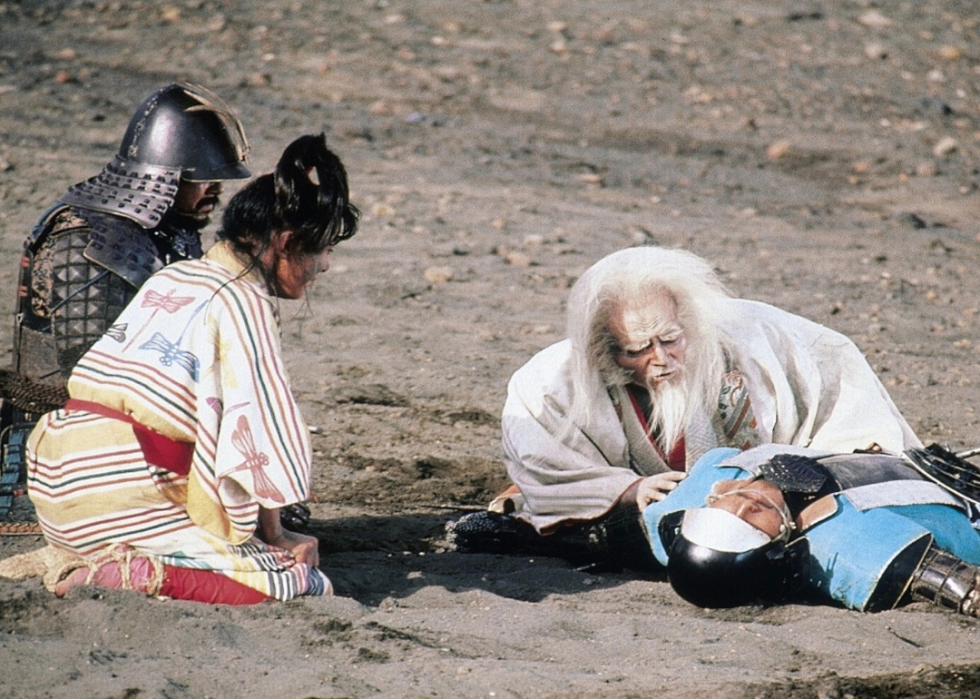
#15. Ran (1985)
- Director: Akira Kurosawa
- Stacker score: 97.28
- Metascore: 97
- IMDb user rating: 8.2
- Runtime: 162 minutes
Akira Kurosawa reimagined Shakespeare's "King Lear" as a drama between a warrior king and his three sons in 16th-century Japan. "Ran" brings the conflict to the battlefield in sweeping combat spectacles that show the renowned director's technical prowess. The bleak themes of the original play become even more epic as the kingdom fractures with grand cinematic beauty.
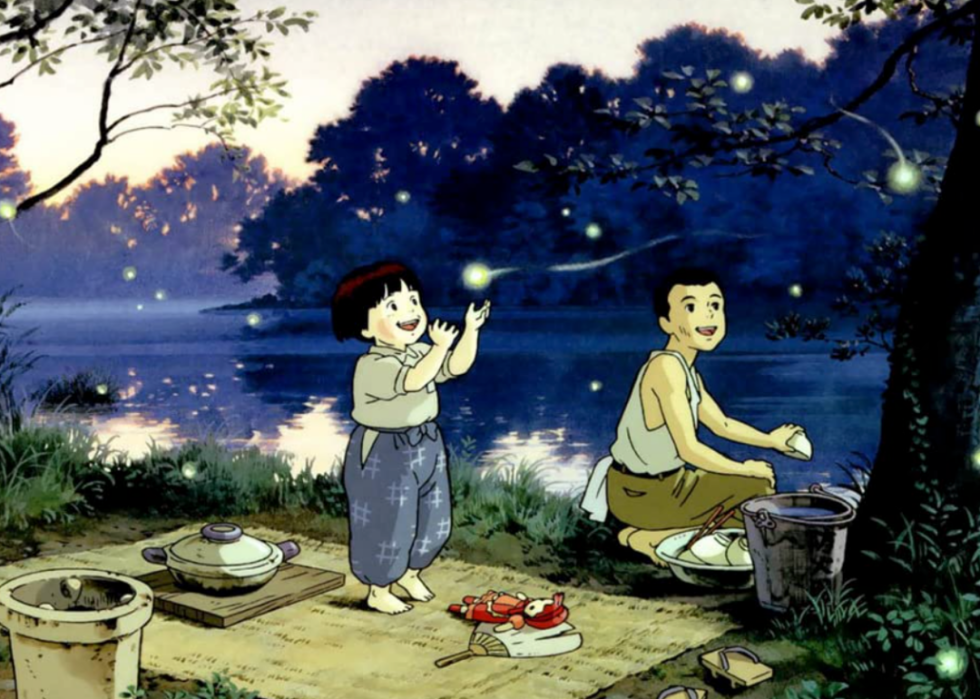
#14. Grave of the Fireflies (1988)
- Director: Isao Takahata
- Stacker score: 97.28
- Metascore: 94
- IMDb user rating: 8.5
- Runtime: 89 minutes
"Grave of the Fireflies" is a haunting tearjerker revered for bringing human depth to animated characters. This Japanese film follows two siblings in the aftermath of the bombings of Nagasaki and Hiroshima. The two struggle as they make their way through landscapes, both harsh and fantastical, to capture the tragic, heart-wrenching experience of its young heroes.
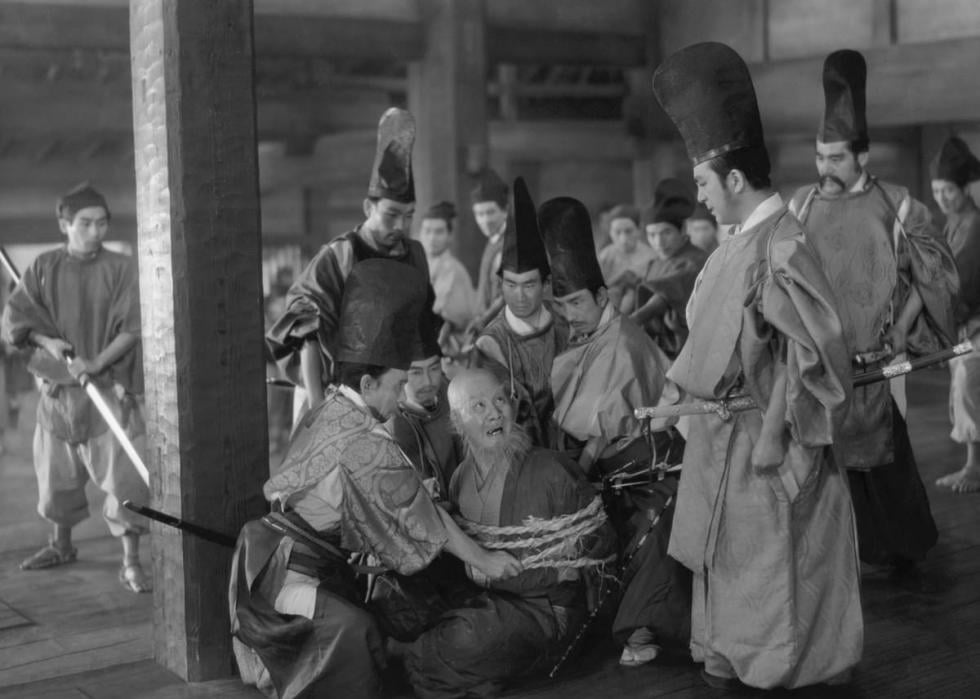
#13. Sansho the Bailiff (1954)
- Director: Kenji Mizoguchi
- Stacker score: 97.83
- Metascore: 96
- IMDb user rating: 8.4
- Runtime: 124 minutes
Set in the Heian period of feudal Japan, a governor is forced into exile. His wife and children are separated on their journey to join him. Along the way, the mother is forced into being a courtesan, and the children are sold into slavery. After a decade of growing up enduring a life of oppression and hardship, the children discover their mother may yet be alive. Kenji Mizoguchi's film is based on Mori Ōgai's 1915 short story, which was itself based on an old folktale.
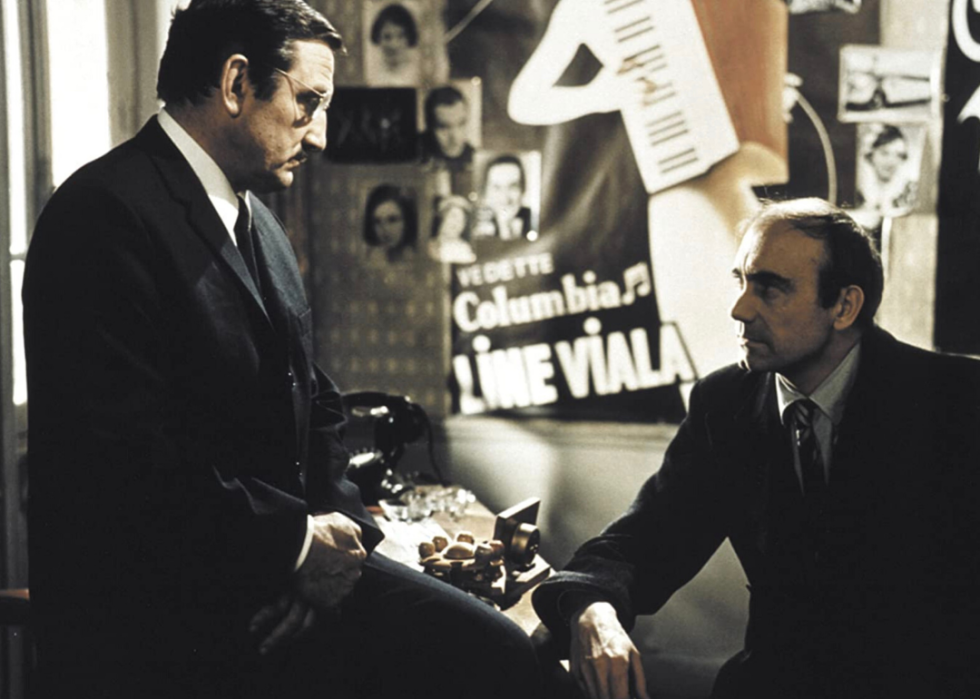
#12. Army of Shadows (1969)
- Director: Jean-Pierre Melville
- Stacker score: 97.83
- Metascore: 99
- IMDb user rating: 8.1
- Runtime: 145 minutes
"Army of Shadows" was an obscure French masterpiece about resistance during World War II until it garnered a critical resurgence of attention upon its American release in 2006. Director Jean-Pierre Melville makes the proceedings unrelentingly bleak in this chilling depiction of betrayal and despair for those who resist the Nazi regime.
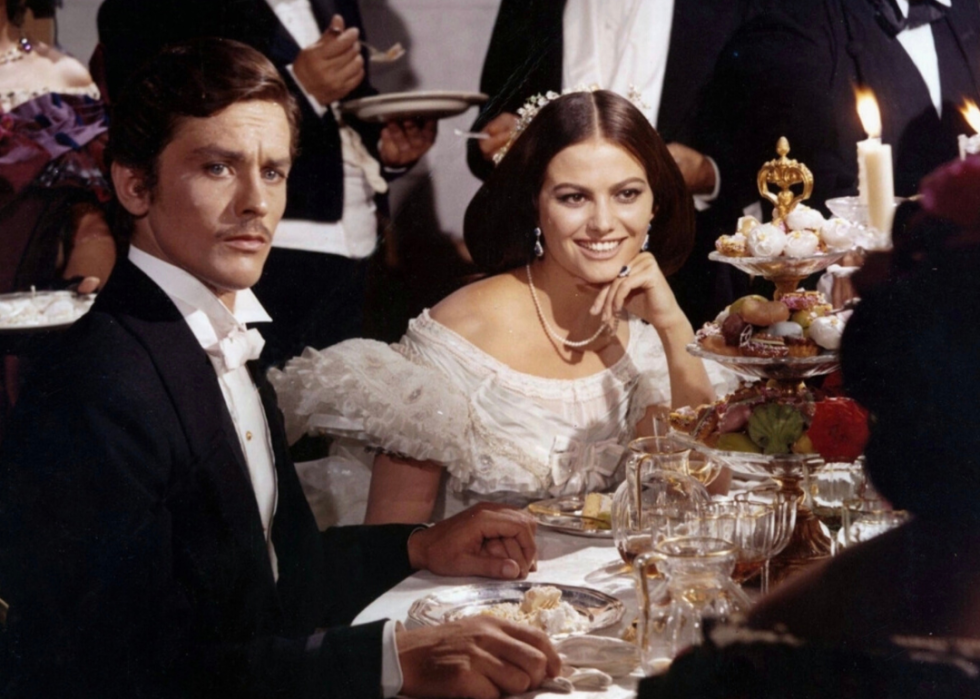
#11. The Leopard (1963)
- Director: Luchino Visconti
- Stacker score: 97.83
- Metascore: 100
- IMDb user rating: 8.0
- Runtime: 186 minutes
Opulent costumes and settings recreate 1860s Sicily, where an aristocratic family copes with the social changes threatening their dynasty. Burt Lancaster stars as the patriarch, a prince looking to protect his family's empire in an epic tale known for its sweeping scale and decadent beauty. "The Leopard" was screened in English in the U.S., and while Lancaster was filmed speaking English, he was later dubbed by an Italian voice actor, with awkward results.
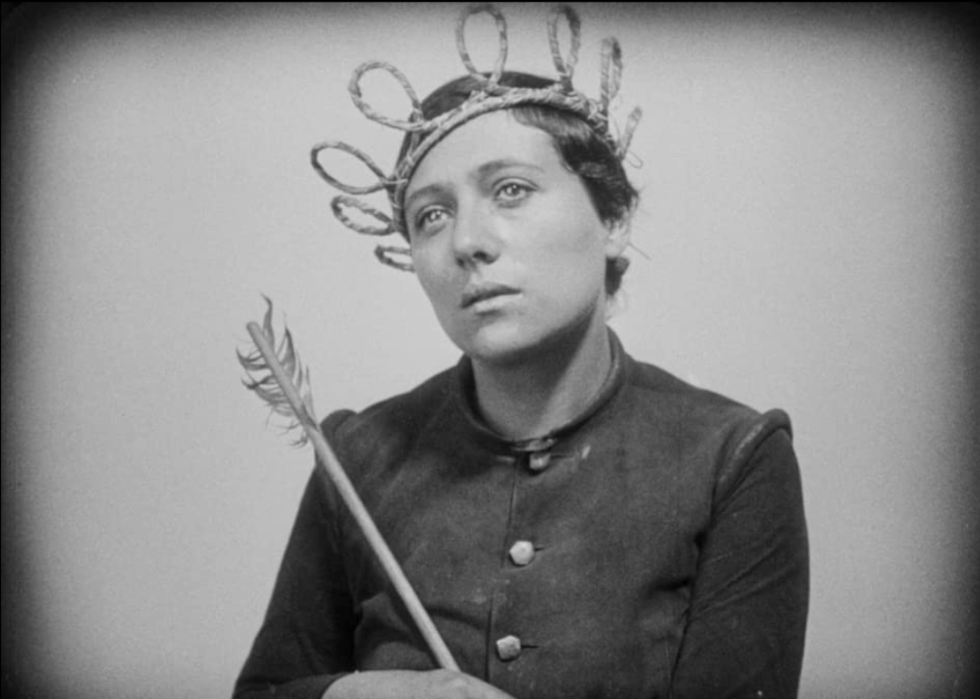
#10. The Passion of Joan of Arc (1928)
- Director: Carl Theodor Dreyer
- Stacker score: 97.83
- Metascore: 98
- IMDb user rating: 8.2
- Runtime: 114 minutes
This silent era staple tells the classic story of the eponymous teenage warrior, Jeanne d'Arc, who faces trial for asserting that she spoke to God in 15th-century France. Subjected to horrific cruelty in order to change her story, Jeanne—mythologized as Joan of Arc—sticks to her truth and becomes a martyr in her execution. The film's resurgence is also something of a miracle. Its theatrical cut and a subsequent cut were both lost in separate fires. It wasn't until 1981, when a janitor was cleaning out a closet at a Norweigan mental hospital, that Dreyer's original version of the film was found—missing but in pristine condition after 50 years.
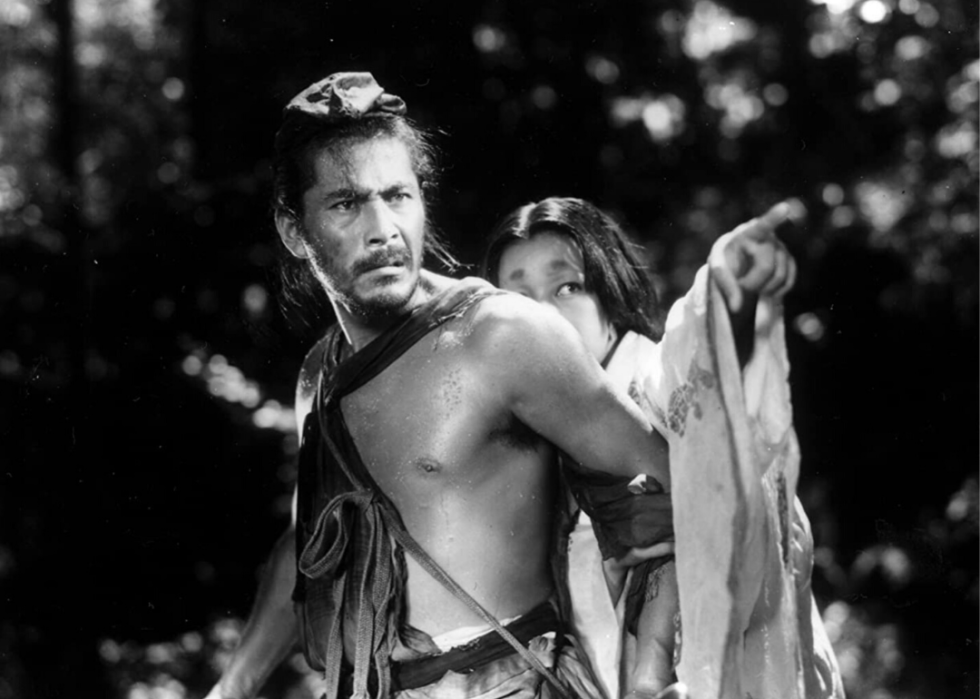
#9. Rashomon (1950)
- Director: Akira Kurosawa
- Stacker score: 97.83
- Metascore: 98
- IMDb user rating: 8.2
- Runtime: 88 minutes
One of the most influential Japanese films of all time, "Rashomon," is most famous for its narrative structure and the way it calls point of view into question. Locals try to make sense of a crime in feudal-era Japan, with details that emerge in vignettes seen from four different perspectives.
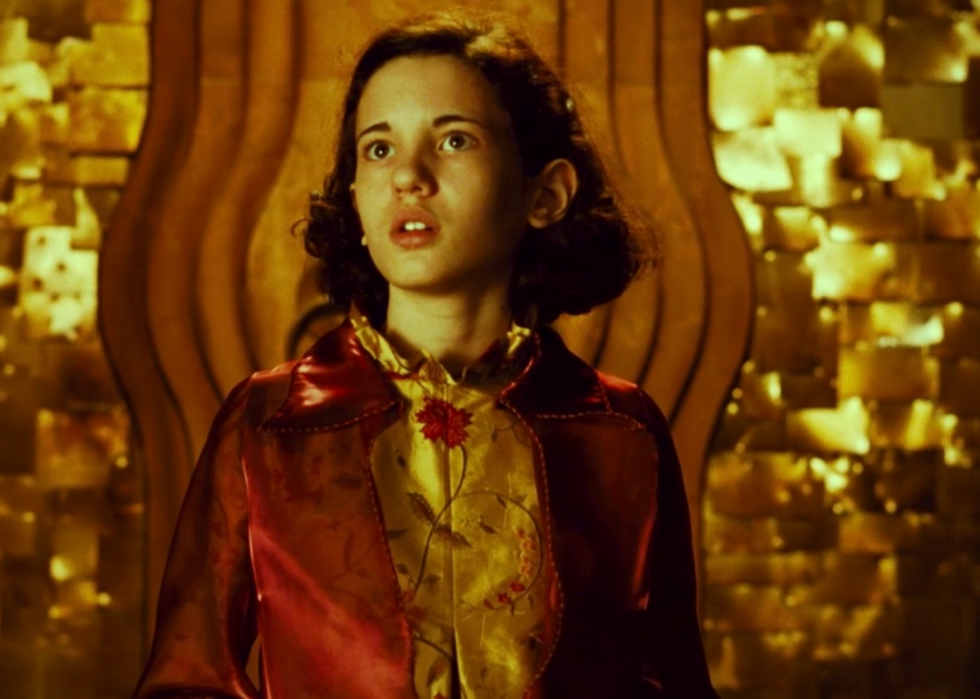
#8. Pan's Labyrinth (2006)
- Director: Guillermo del Toro
- Stacker score: 97.83
- Metascore: 98
- IMDb user rating: 8.2
- Runtime: 118 minutes
Mexican director Guillermo del Toro's resplendent and bizarre fairy tale for adults brims with surreal intrigue and nightmare scenarios involving a child-eating creature known as Pale Man with eyes in his palms. Taking place in Spain during World War II, "Pan's Labyrinth" mixes realistic history with a fantastical descent into the underworld to depict the horrors of wartime.
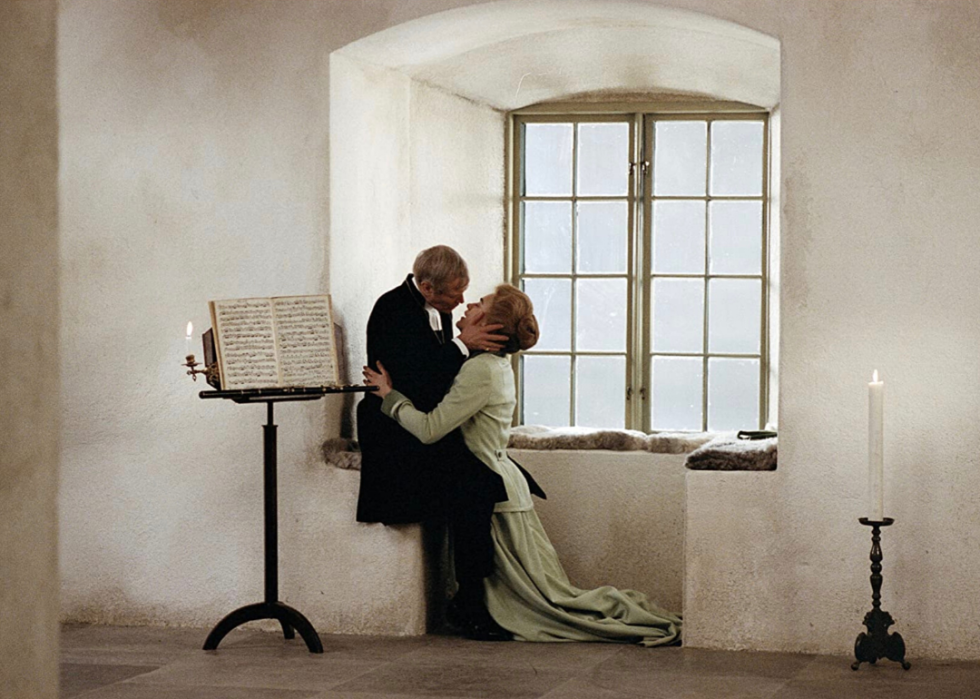
#7. Fanny and Alexander (1982)
- Director: Ingmar Bergman
- Stacker score: 98.37
- Metascore: 100
- IMDb user rating: 8.1
- Runtime: 188 minutes
Known for arthouse classics "Persona" and "Wild Strawberries," Swedish auteur Ingmar Bergman may be most acclaimed for this sprawling family drama with supernatural elements set in the early 1900s. Two children (the plot is semi-autobiographical) must contend with the brutal bishop their mother marries after the death of their beloved father. Bergman's characteristic themes of psychological mayhem play out through the children's dreams and desperation for escape.
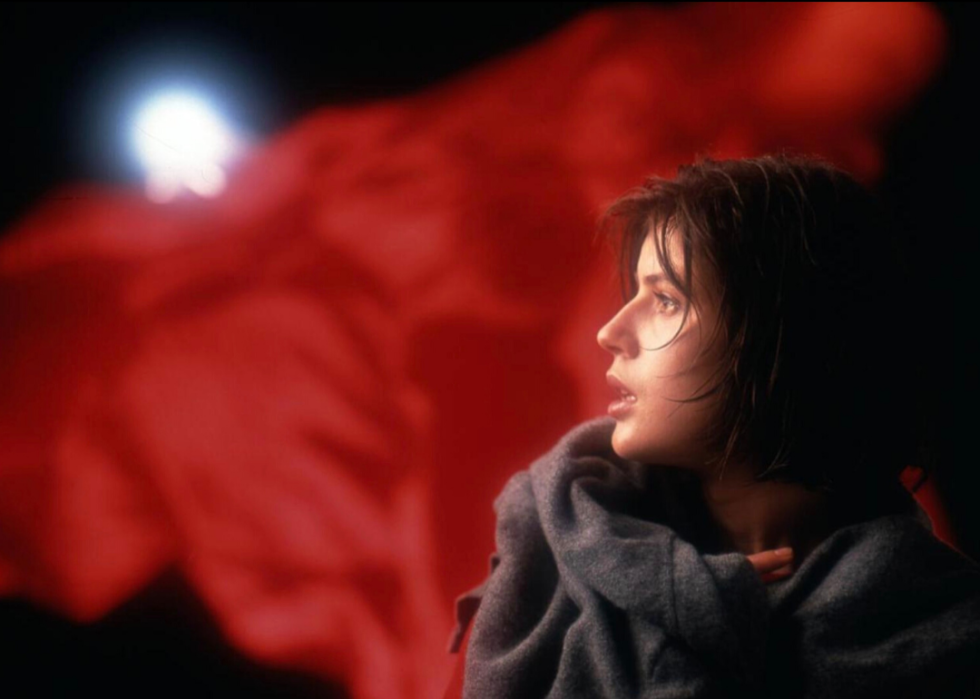
#6. Three Colors: Red (1994)
- Director: Krzysztof Kieslowski
- Stacker score: 98.37
- Metascore: 100
- IMDb user rating: 8.1
- Runtime: 99 minutes
Polish director Krzysztof Kieslowski's "Three Colors Trilogy" took the French flag as inspiration and thematically tethered to its mottos three artsy, interlinked dramas that were co-produced by France, Poland, and Switzerland. The final "Red," after "Blue" and "White," stars Irène Jacob as a student and model whose life intersects with a retired judge. Critics hailed "Red" as the best of the three (it has a 100% rating on Rotten Tomatoes) due to its atmospheric beauty and interconnected themes.
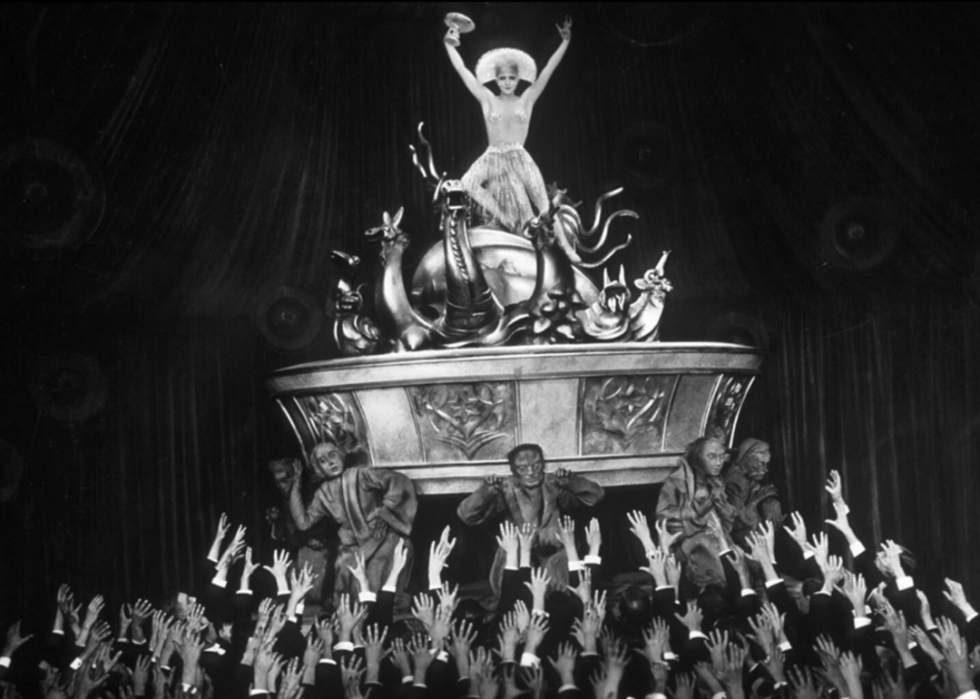
#5. Metropolis (1927)
- Director: Fritz Lang
- Stacker score: 98.37
- Metascore: 98
- IMDb user rating: 8.3
- Runtime: 153 minutes
Fritz Lang's iconic science fiction classic is a masterwork of German expressionism and silent cinema. In "Metropolis," elites frolic on garden rooftops while workers toil in the depths below, subdued by monstrous machinery. The iconic, art deco-inspired robot Maria suggests a fear of technology in this highly influential film known for its vast scale and striking visuals.
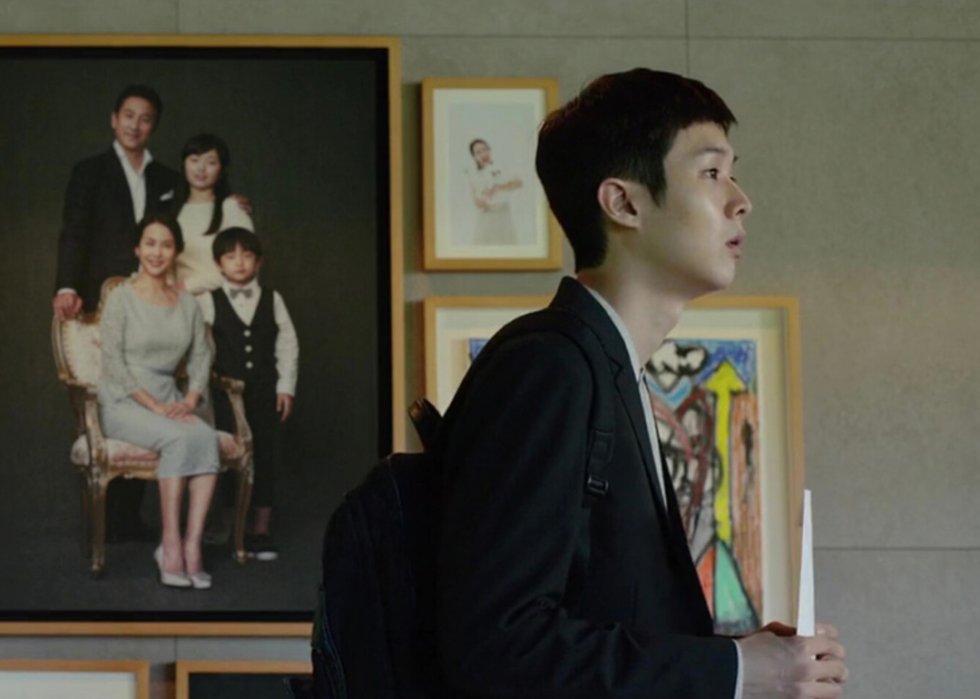
#4. Parasite (2019)
- Director: Bong Joon Ho
- Stacker score: 98.37
- Metascore: 96
- IMDb user rating: 8.5
- Runtime: 132 minutes
The affluent home in "Parasite" becomes a setting for nightmarish conflicts between a rich household and the poor family they hire as servants. Bong Joon Ho entwines domestic class struggles with a dark, surrealist edge. "Parasite" became the first foreign language film to win the Best Picture Oscar, while also winning Best Foreign Language Film—the first time South Korea had been nominated in either category.
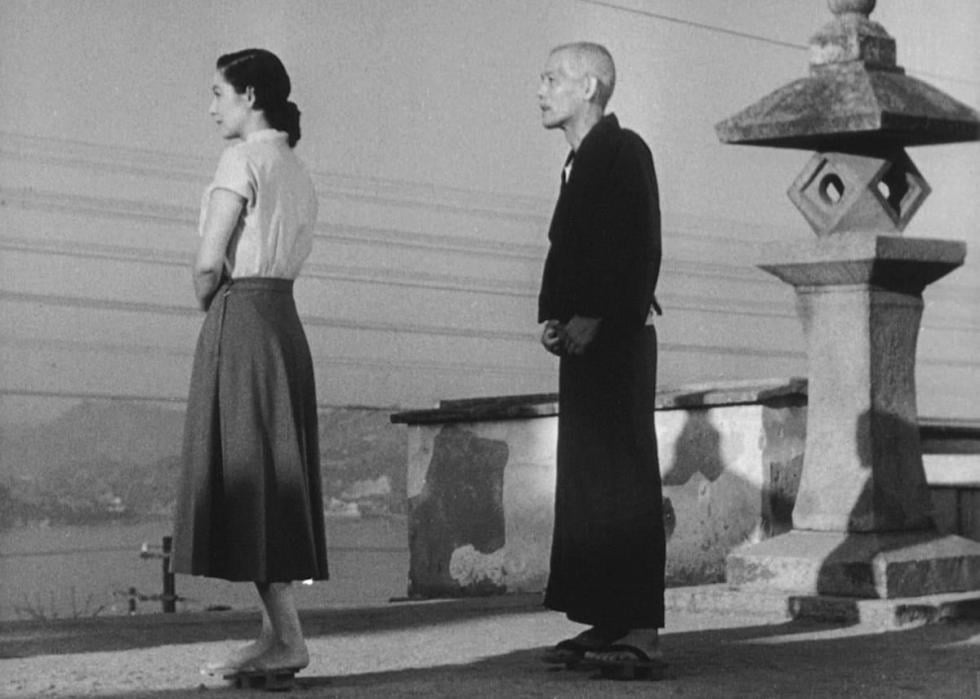
#3. Tokyo Story (1953)
- Director: Yasujirô Ozu
- Stacker score: 98.91
- Metascore: 100
- IMDb user rating: 8.2
- Runtime: 136 minutes
This film—#4 on Sight and Sound's 2022 Greatest Films of All Time poll—follows an elderly Japanese couple on their journey from their rural seaside home to visit their two adult children in Tokyo: their doctor son and hairdresser daughter. Though the children prove too busy to spend time with their parents, the widowed wife of their deceased second son takes it upon herself to keep them company.
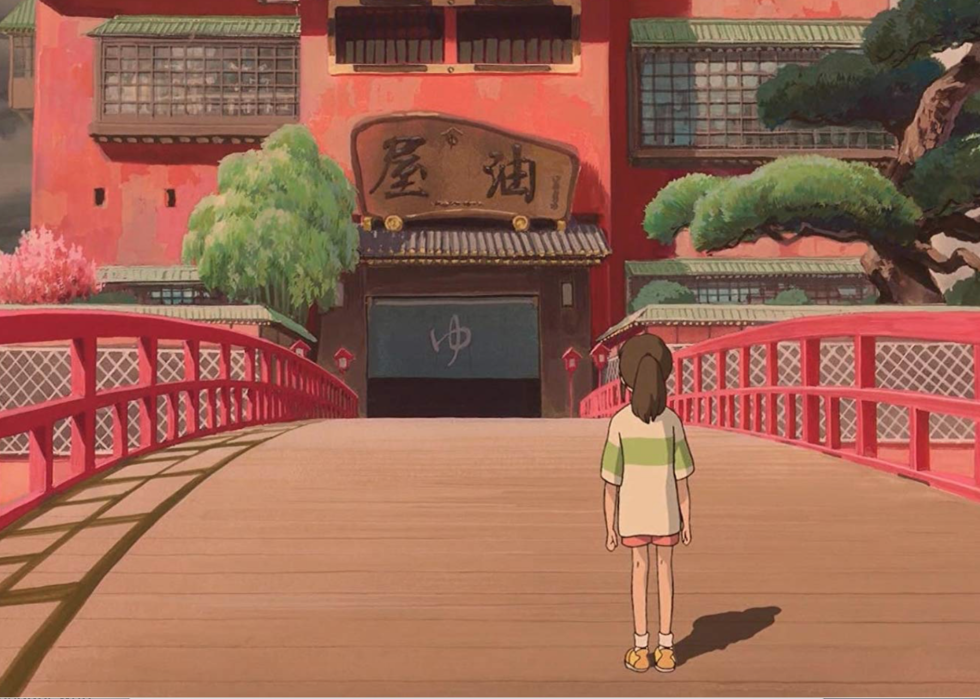
#2. Spirited Away (2001)
- Director: Hayao Miyazaki
- Stacker score: 98.91
- Metascore: 96
- IMDb user rating: 8.6
- Runtime: 125 minutes
This coming-of-age adventure is a wondrous masterpiece of Japanese animation from acclaimed writer-director Hayao Miyazaki. In this brilliantly original fairy tale, a 10-year-old girl, Chihiro, loses her parents and finds herself adrift in a world filled with strange gods and creatures. Vivid worldbuilding and glorious visuals make this a family film that transcends the usual fare with heartfelt depth and mesmerizing intensity.
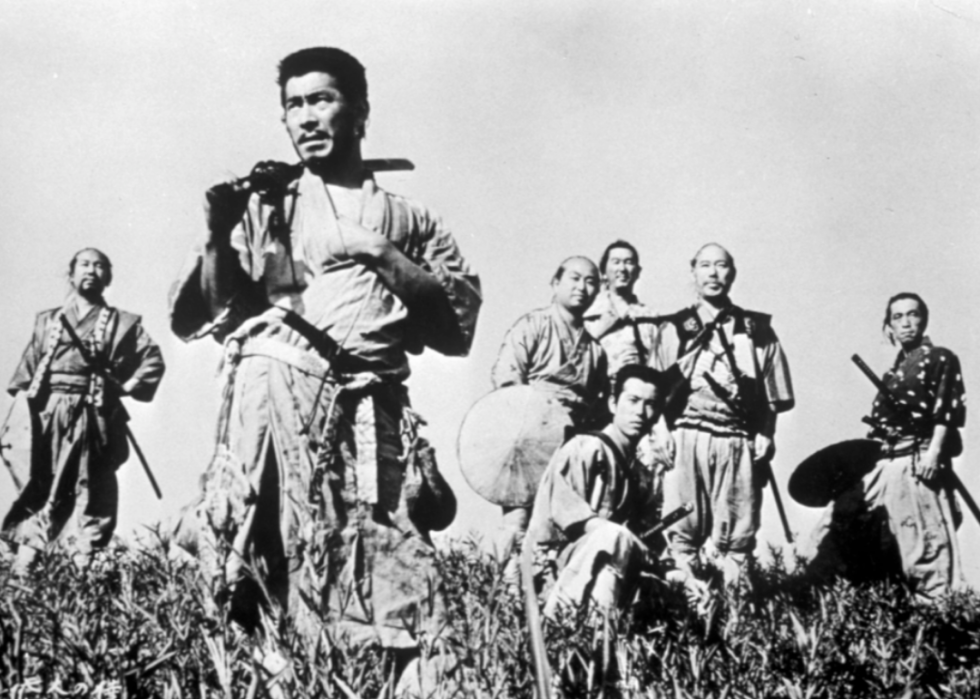
#1. Seven Samurai (1954)
- Director: Akira Kurosawa
- Stacker score: 100
- Metascore: 98
- IMDb user rating: 8.6
- Runtime: 207 minutes
Akira Kurosawa's battle-heavy masterpiece remains one of the most influential films ever. In 16th-century Japan, a ragtag group of seven fighters band together at a village outpost as plunderers surround from all sides. The tense and prolonged final battle, as well as the "team of heroes against impossible odds" narrative, show up again in countless combat and action films that obsess over honor and what makes a hero.
Data reporting by Lucas Hicks. Story editing by Carren Jao. Copy editing by Robert Wickwire.



